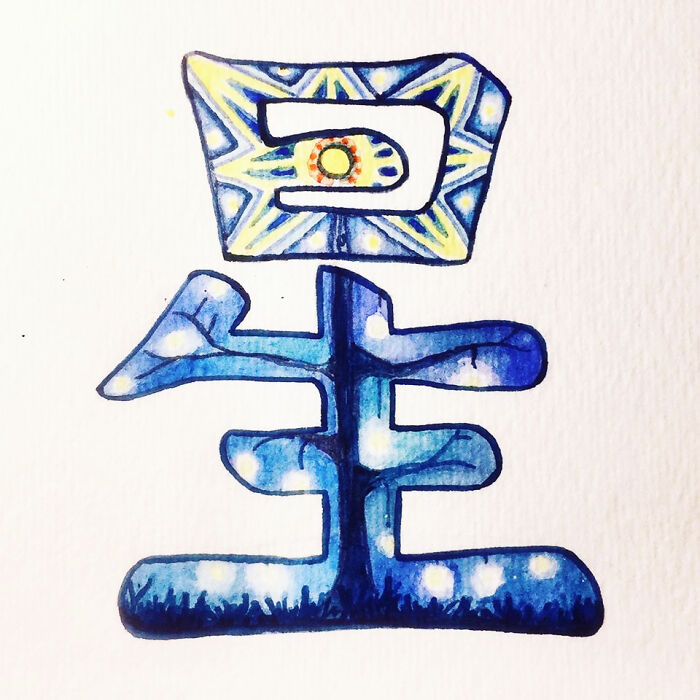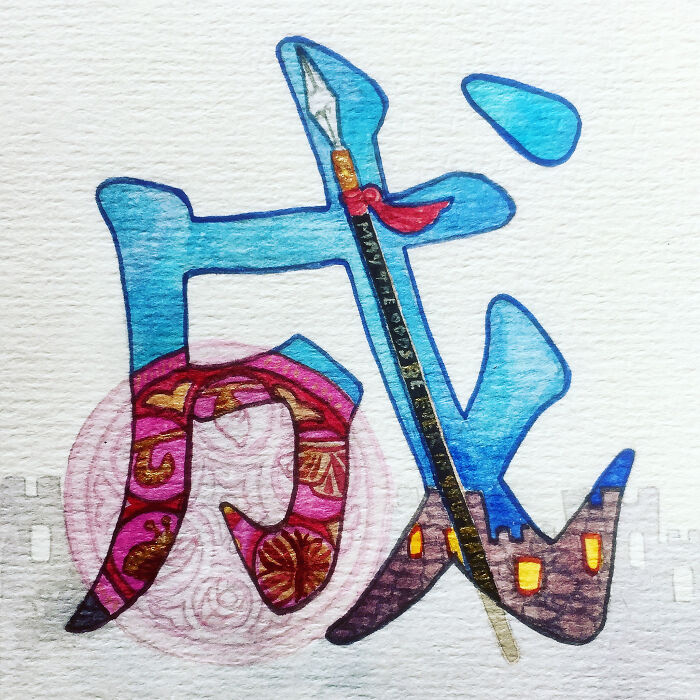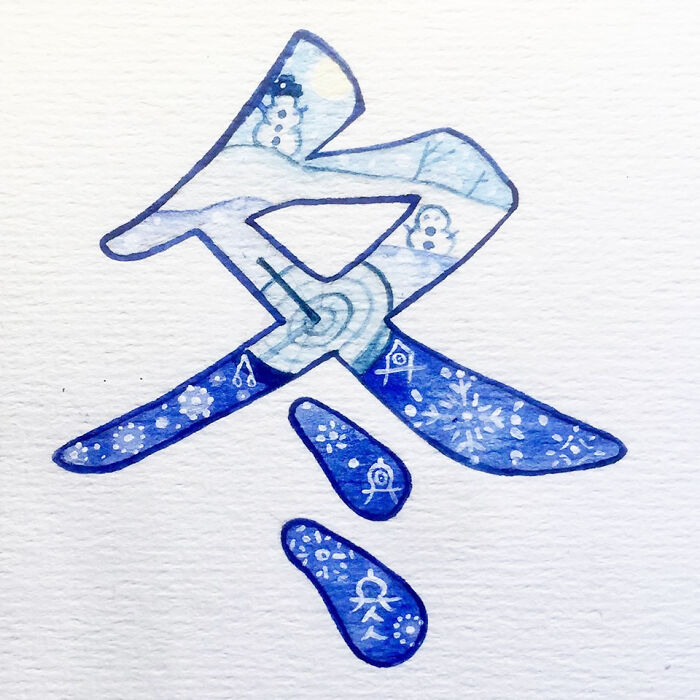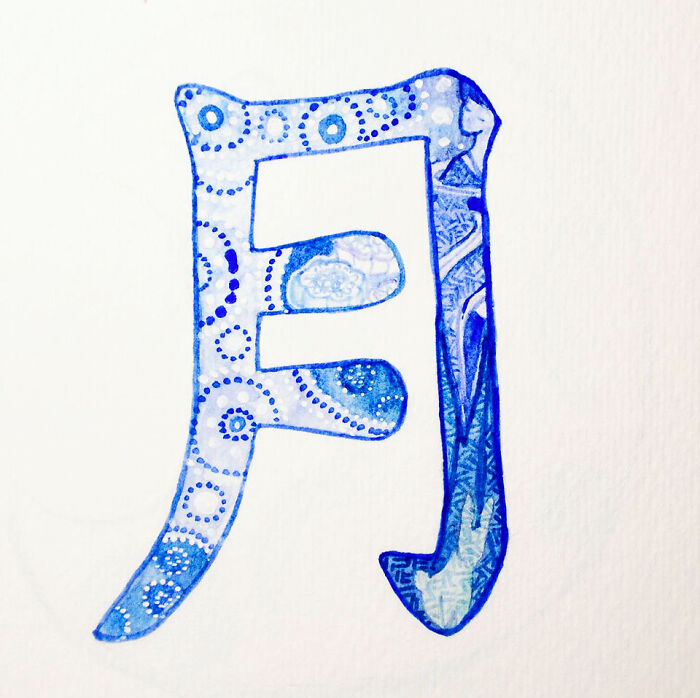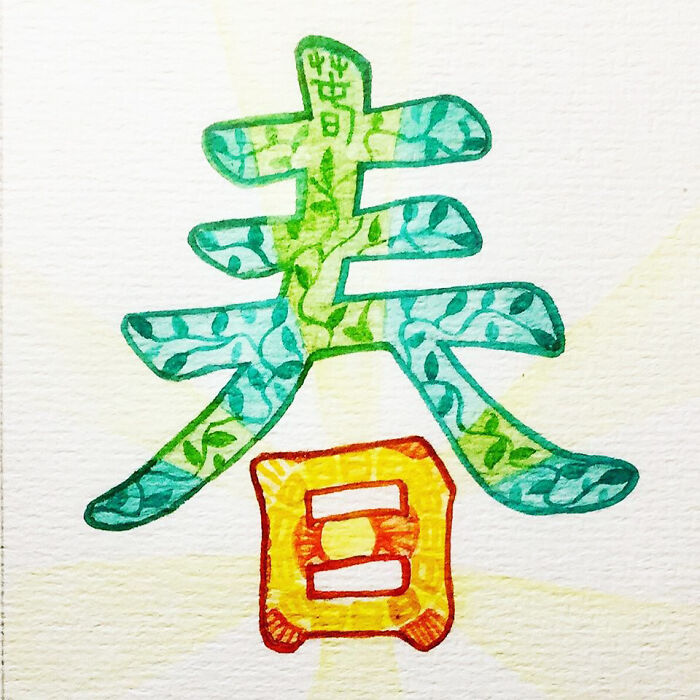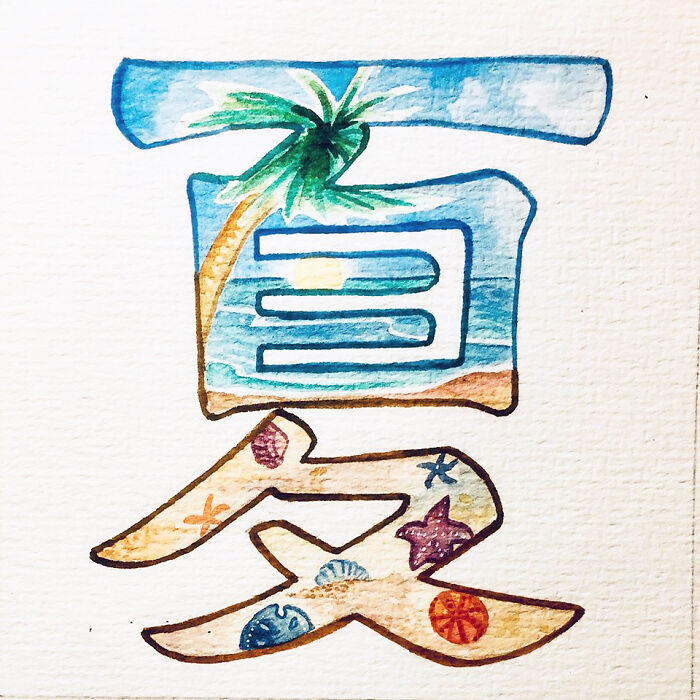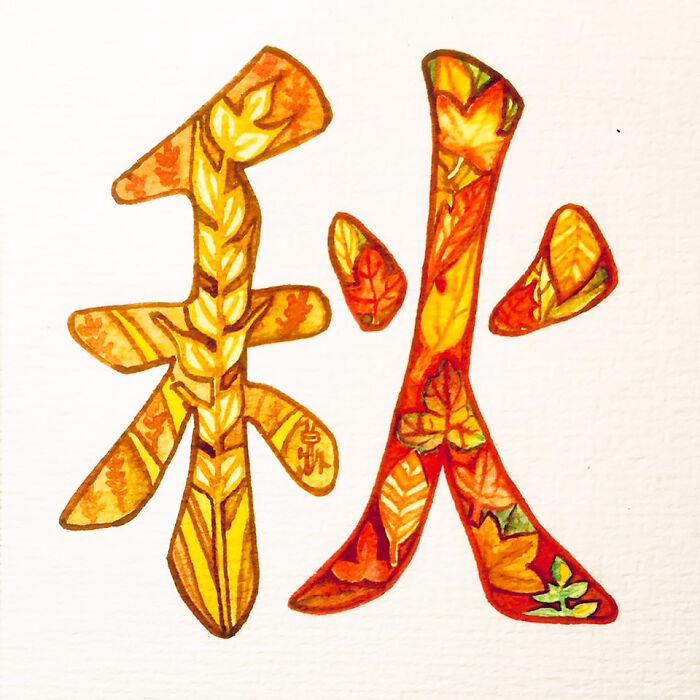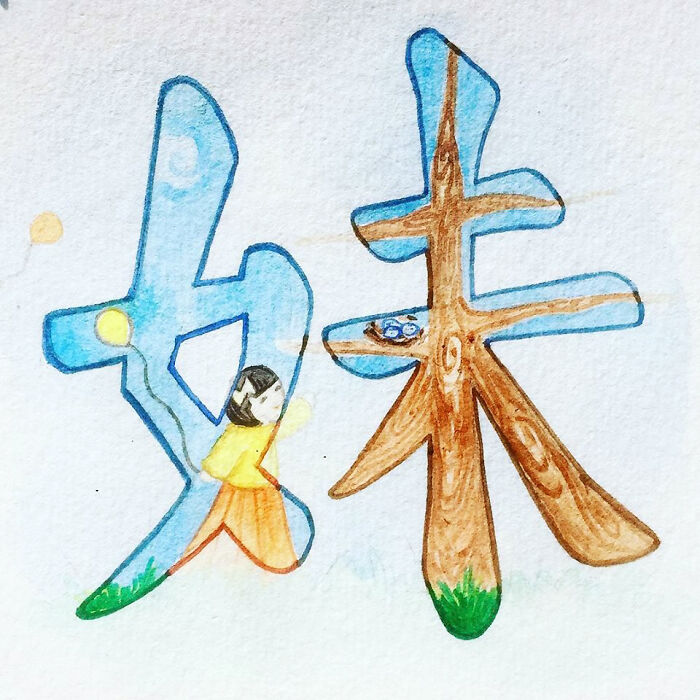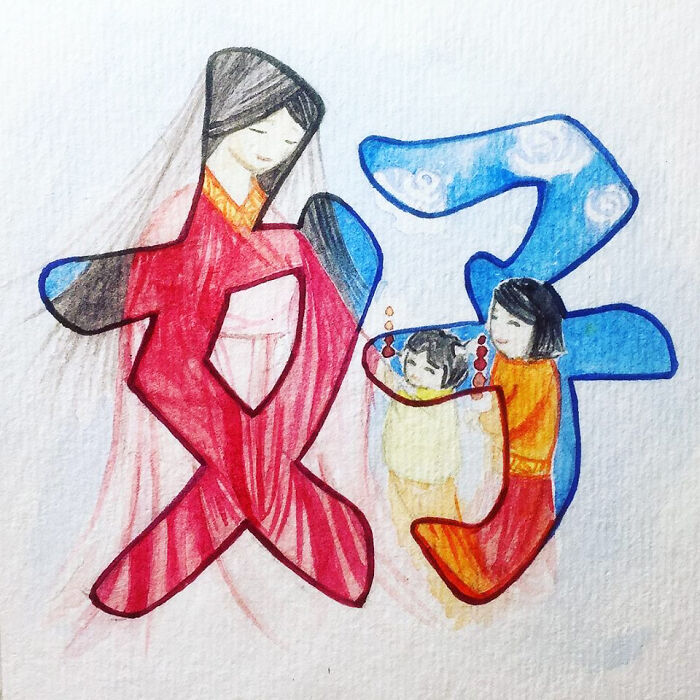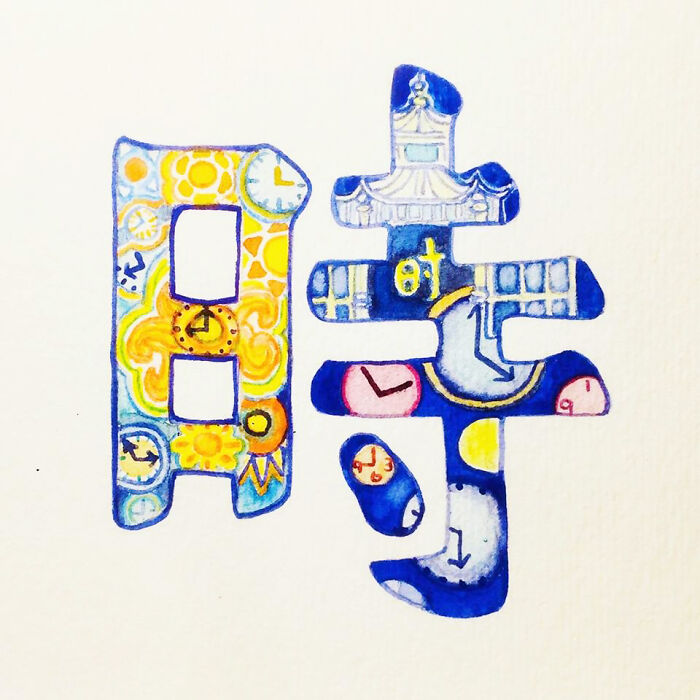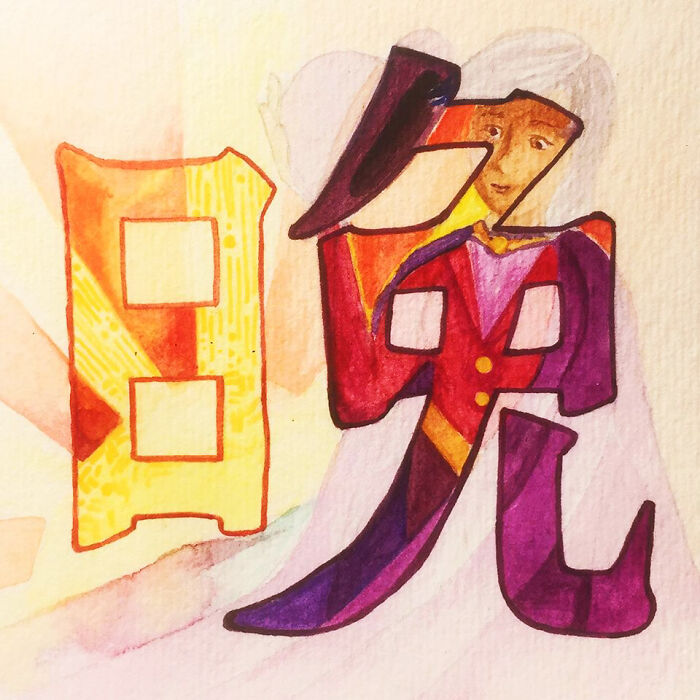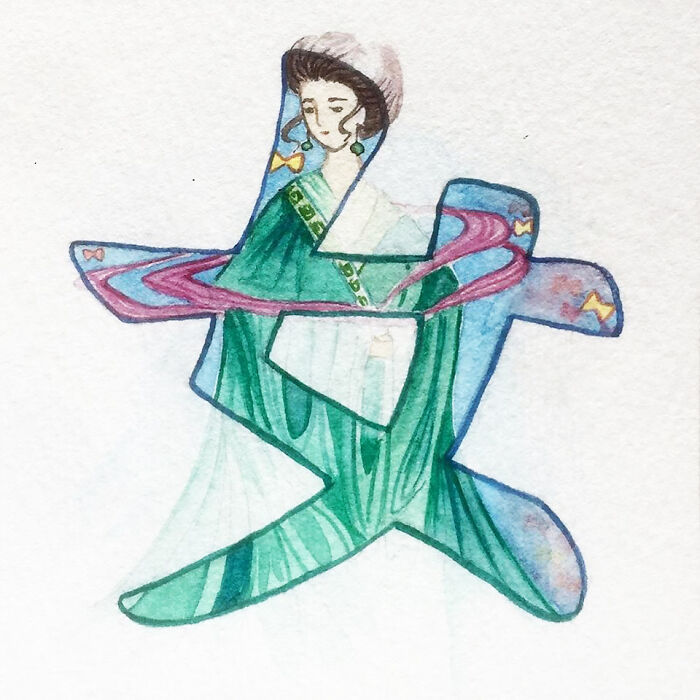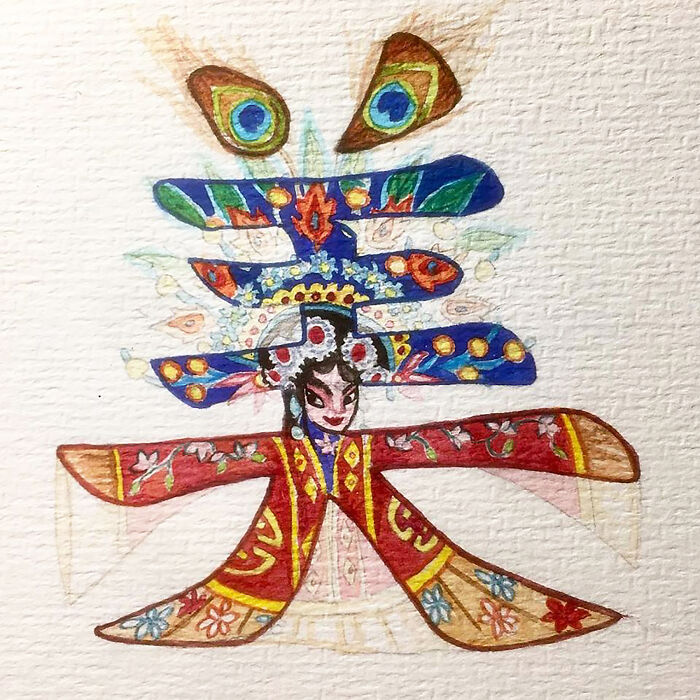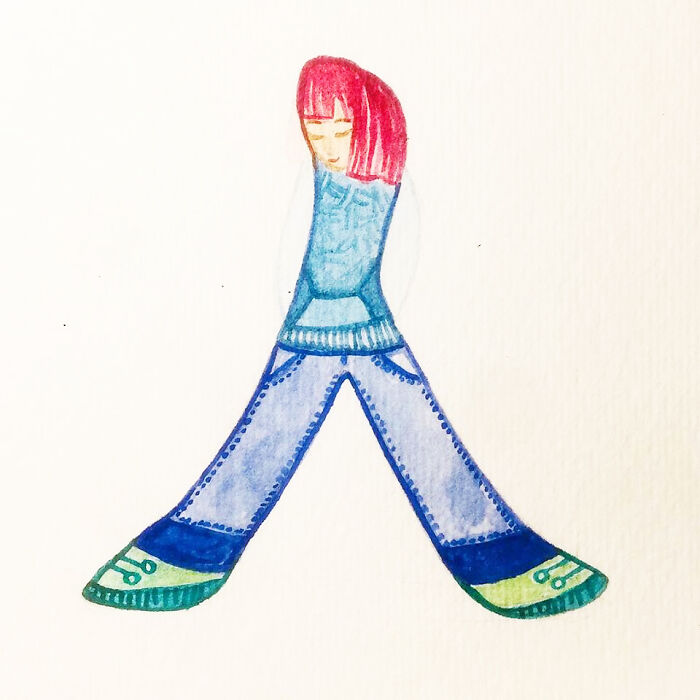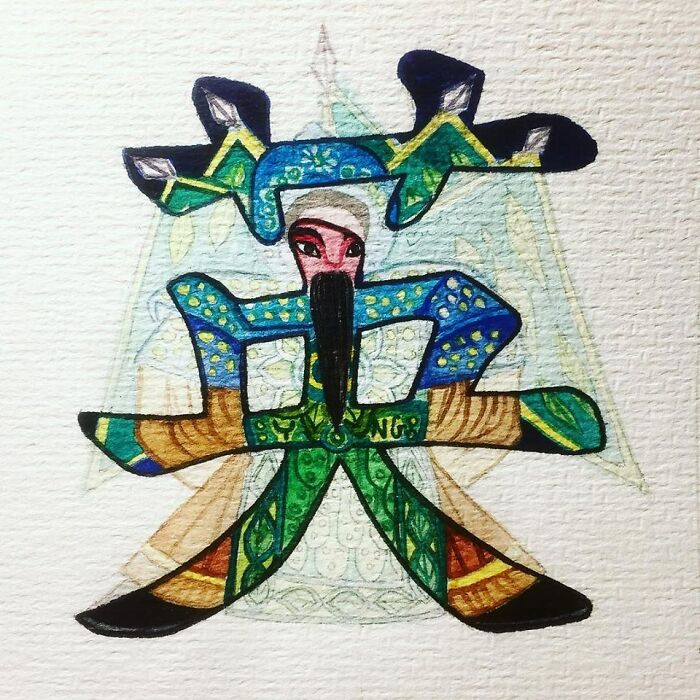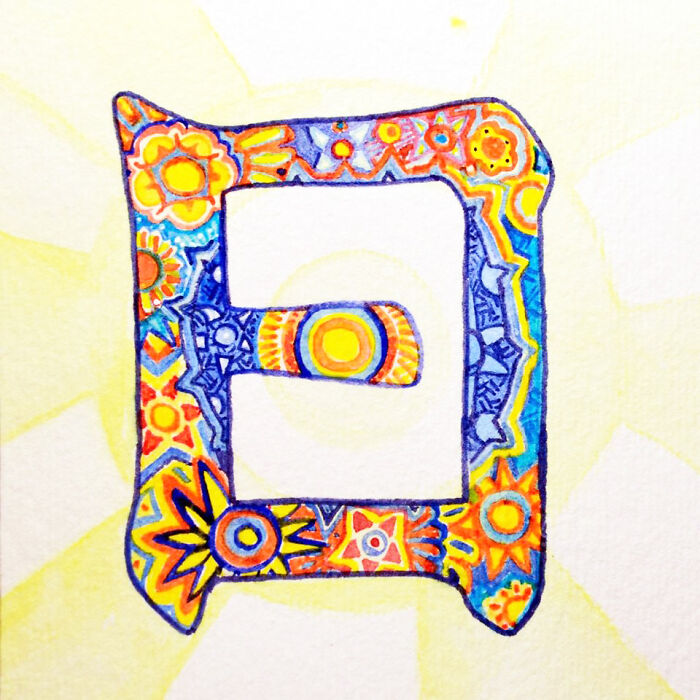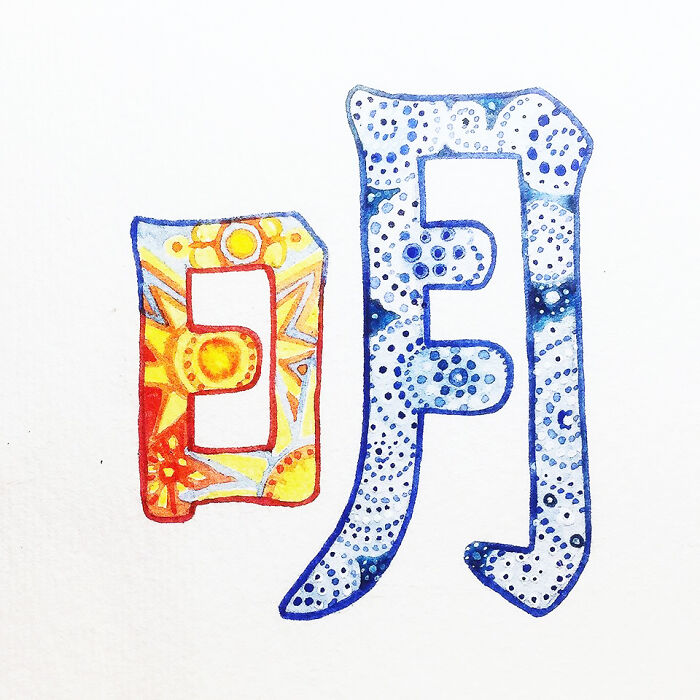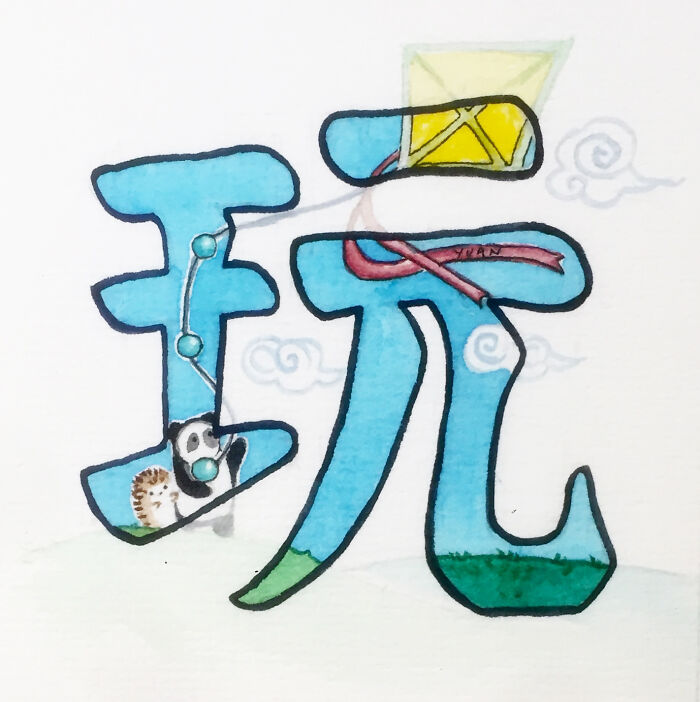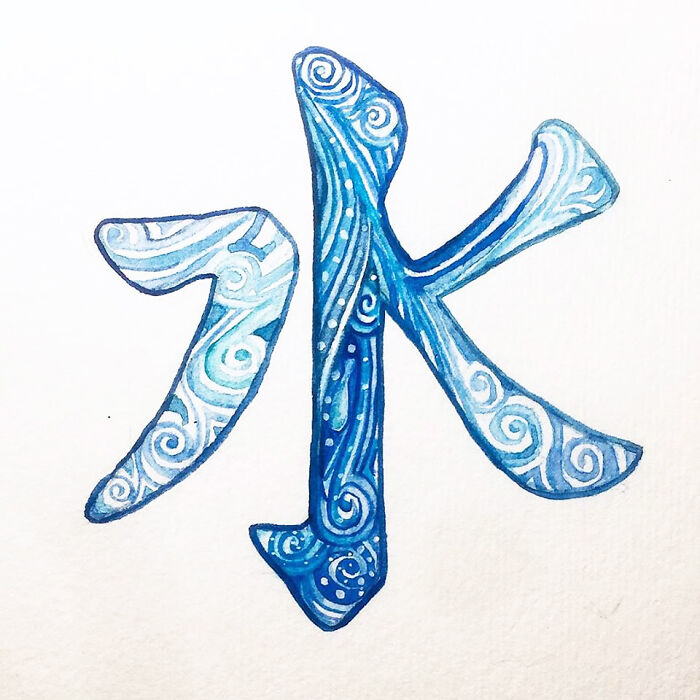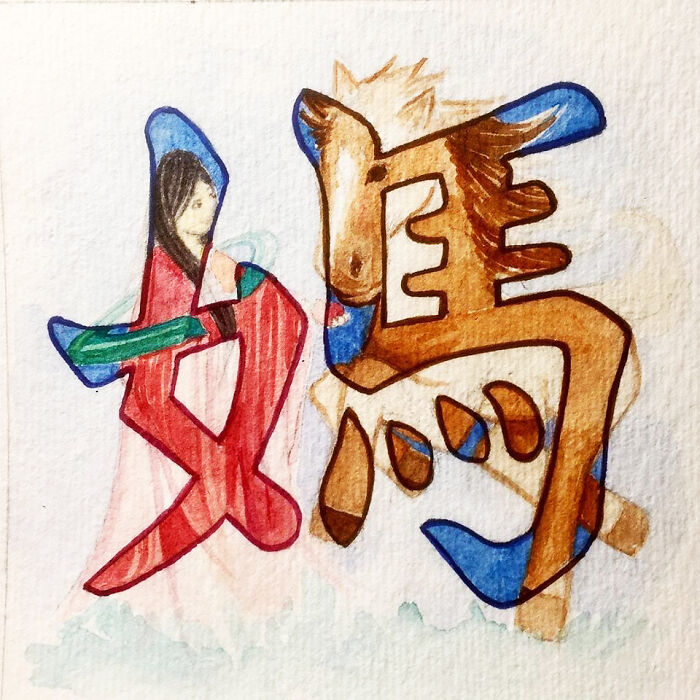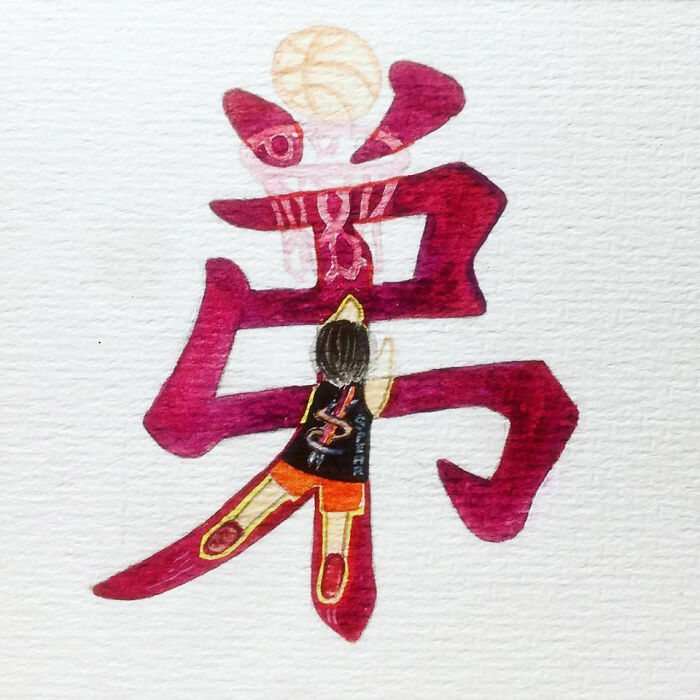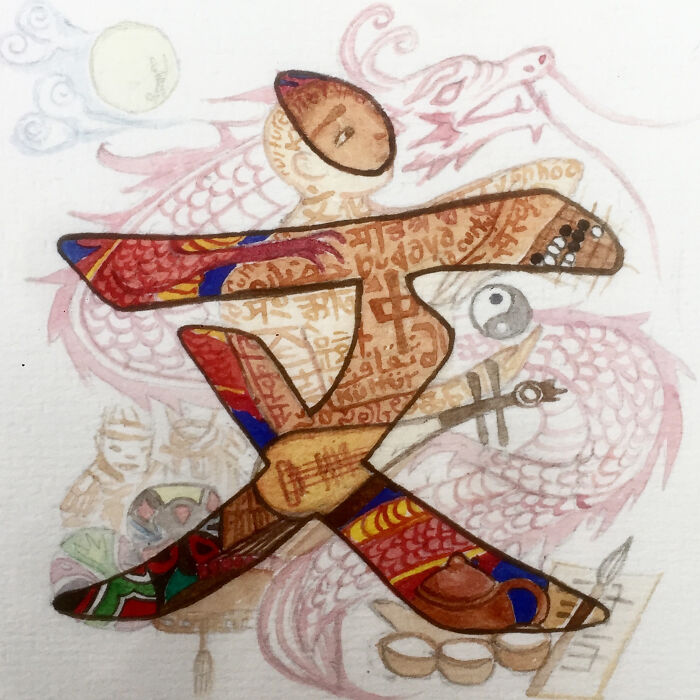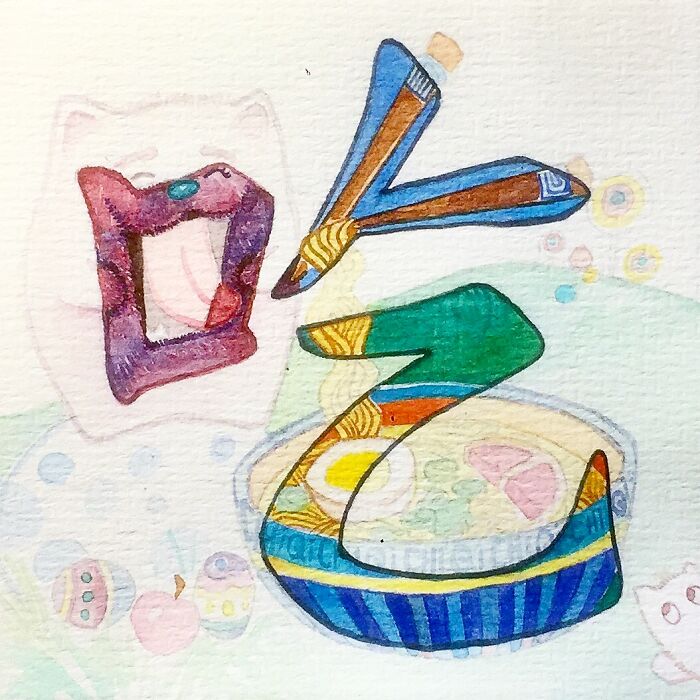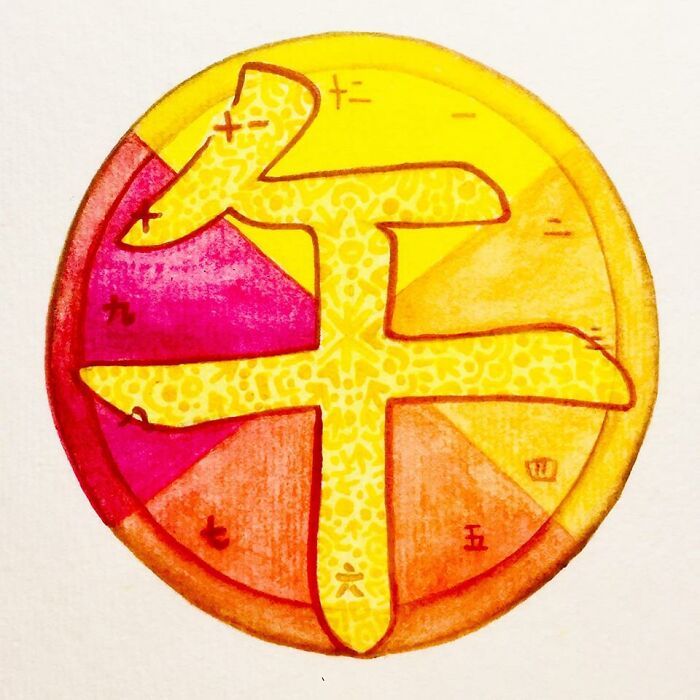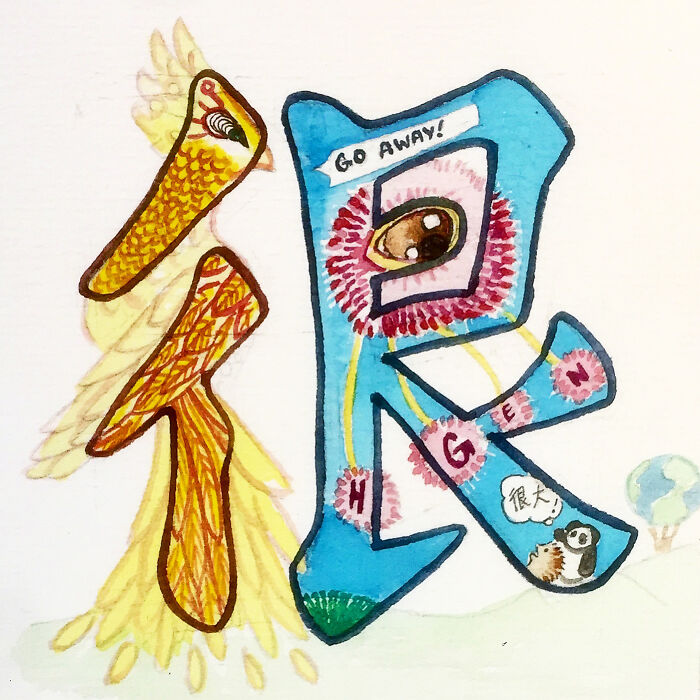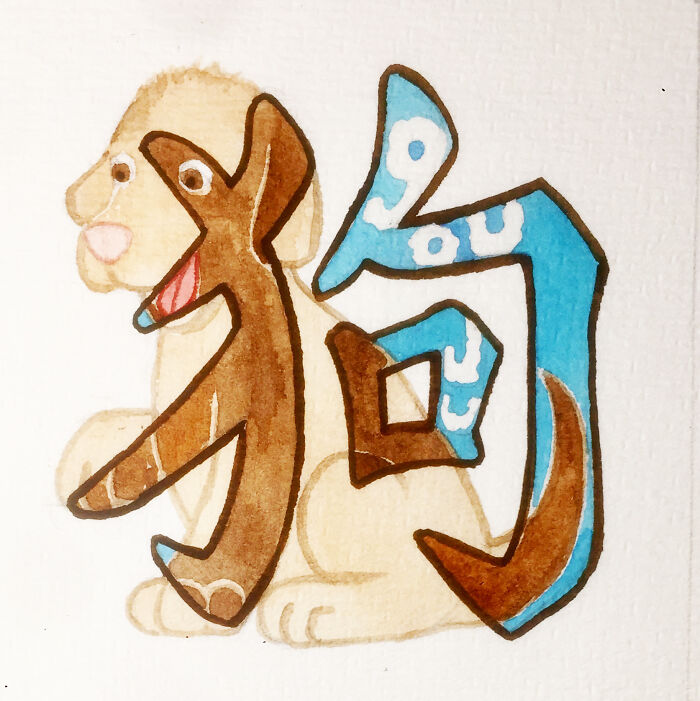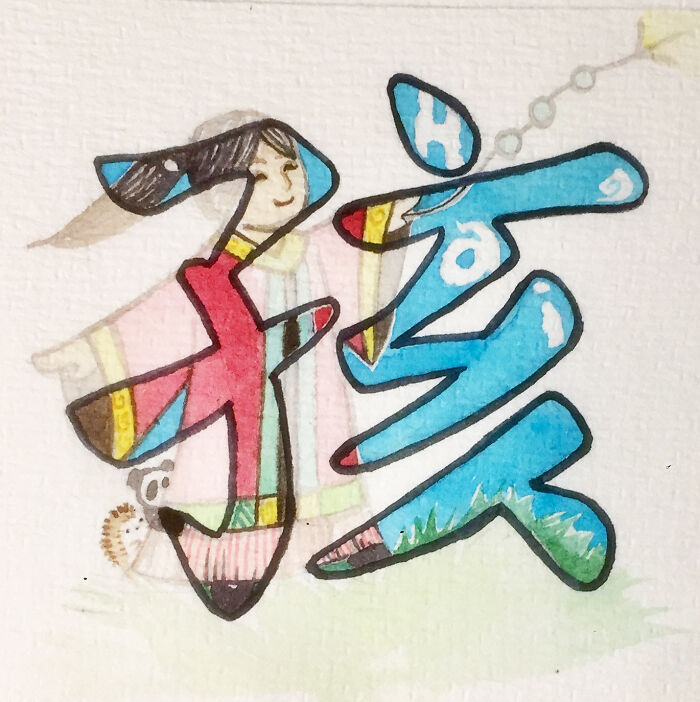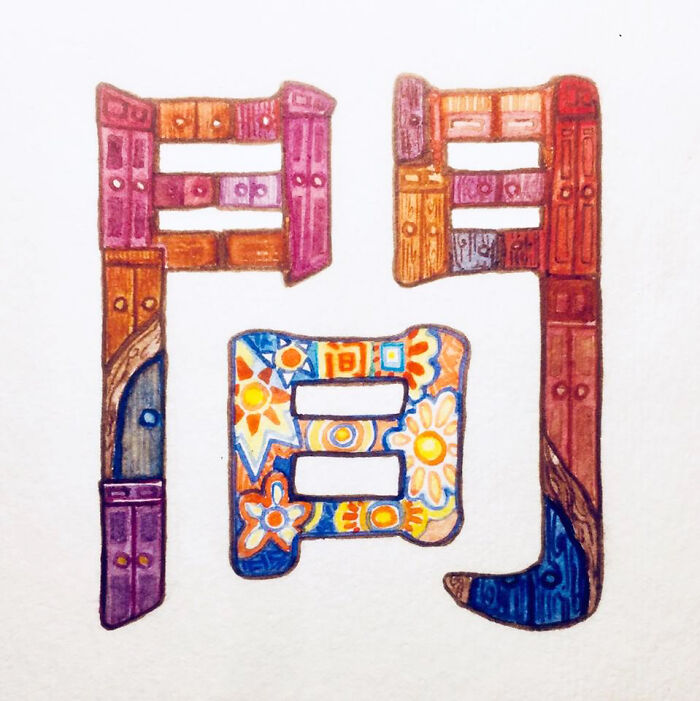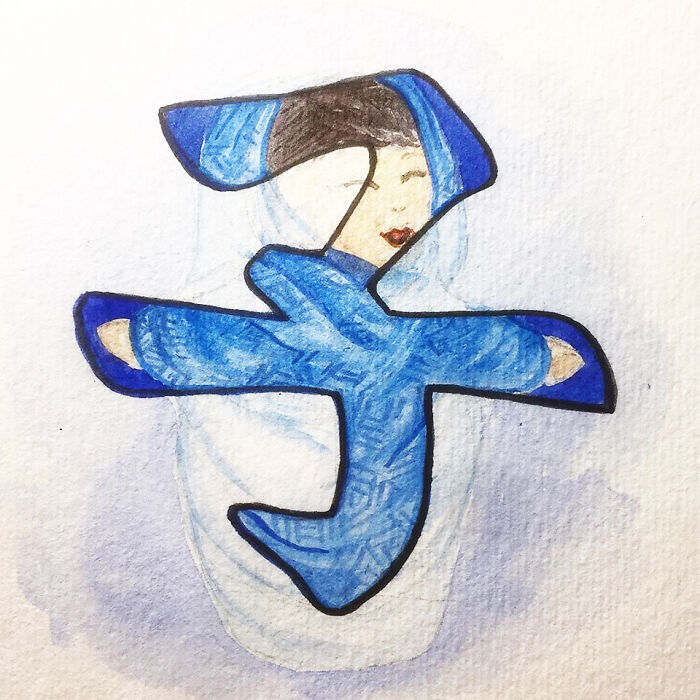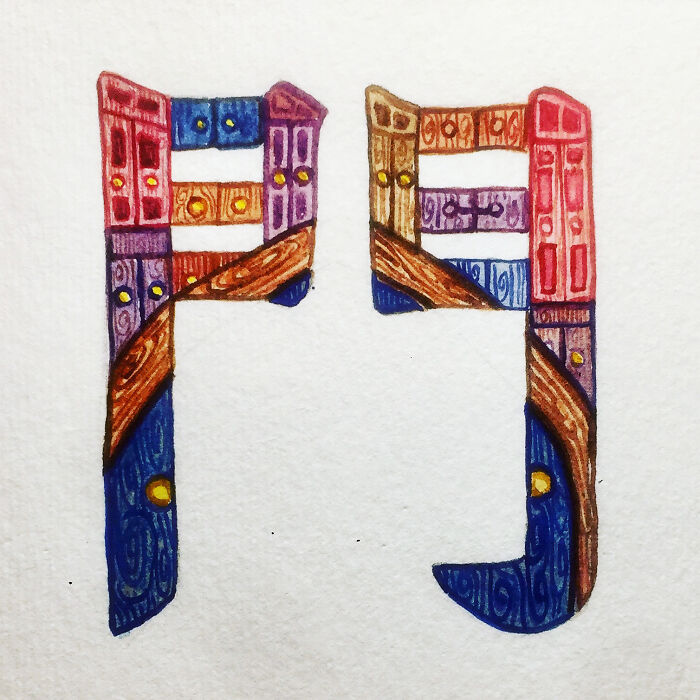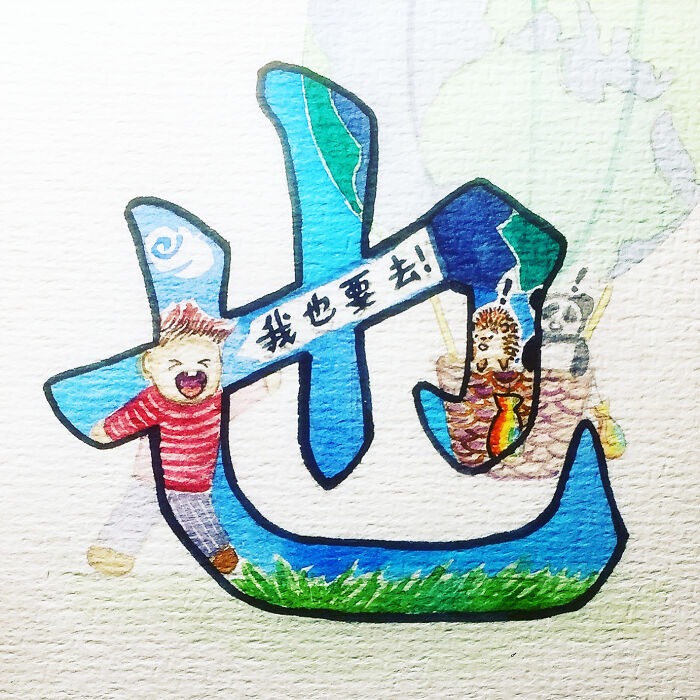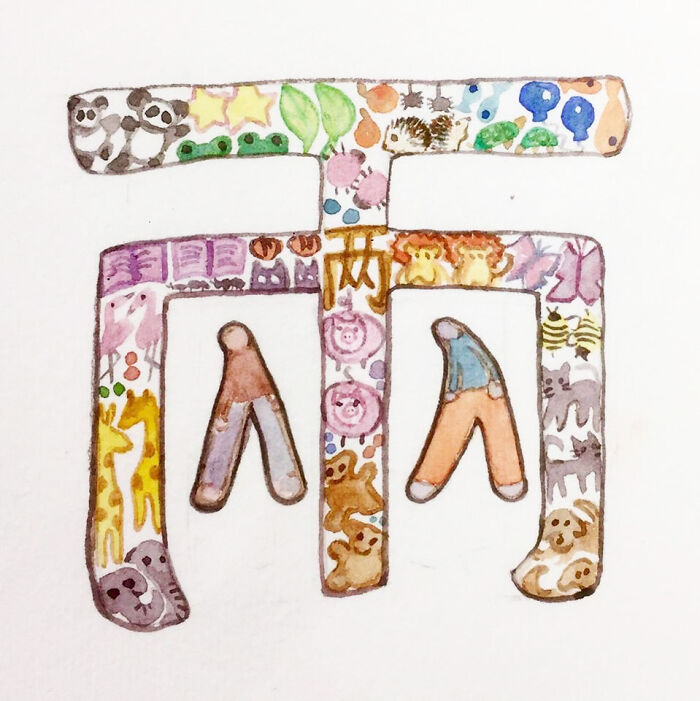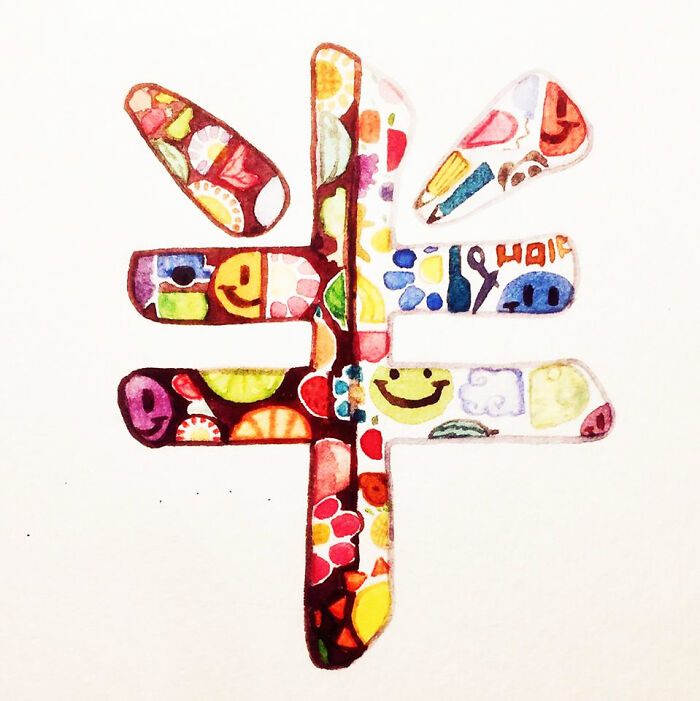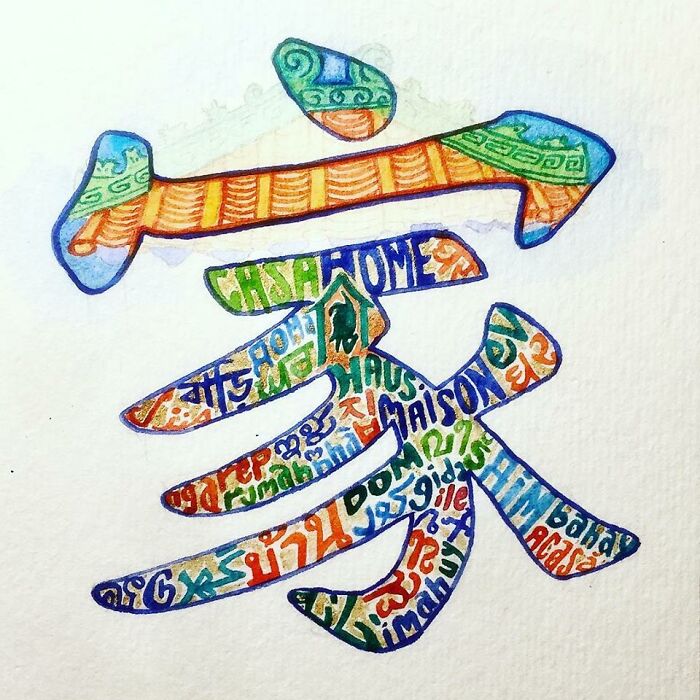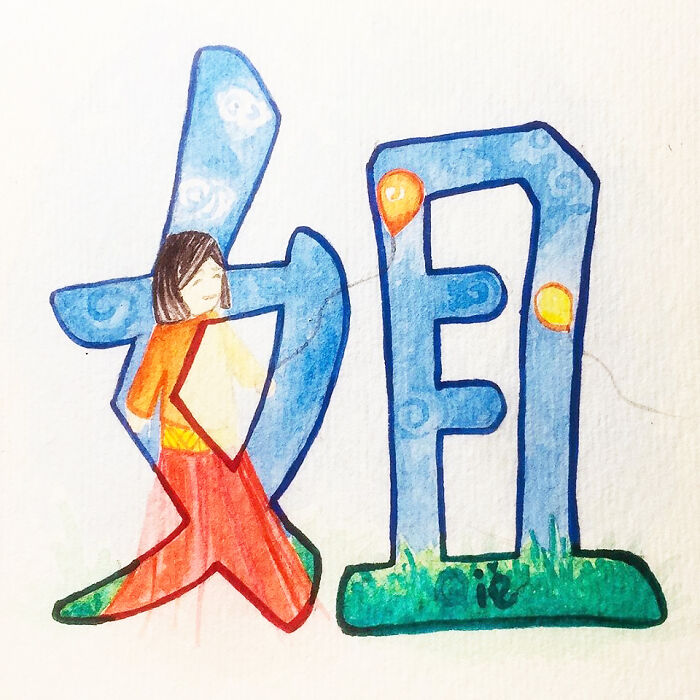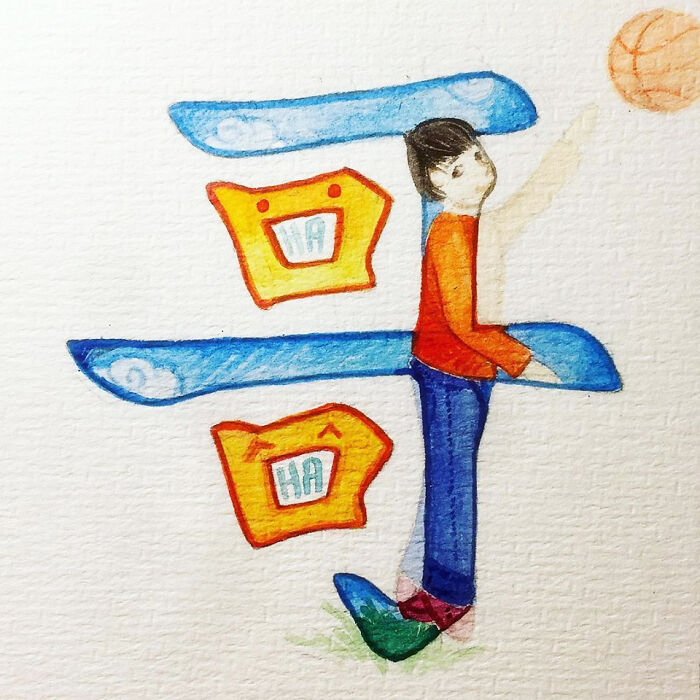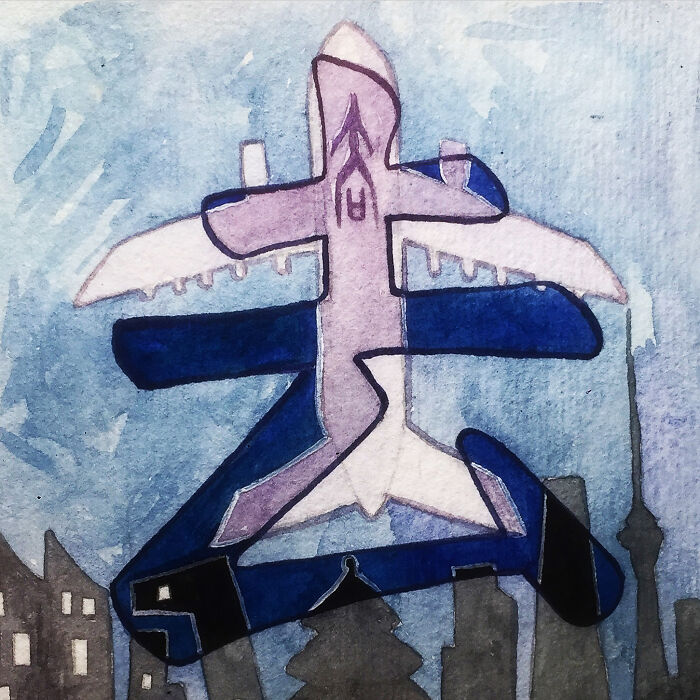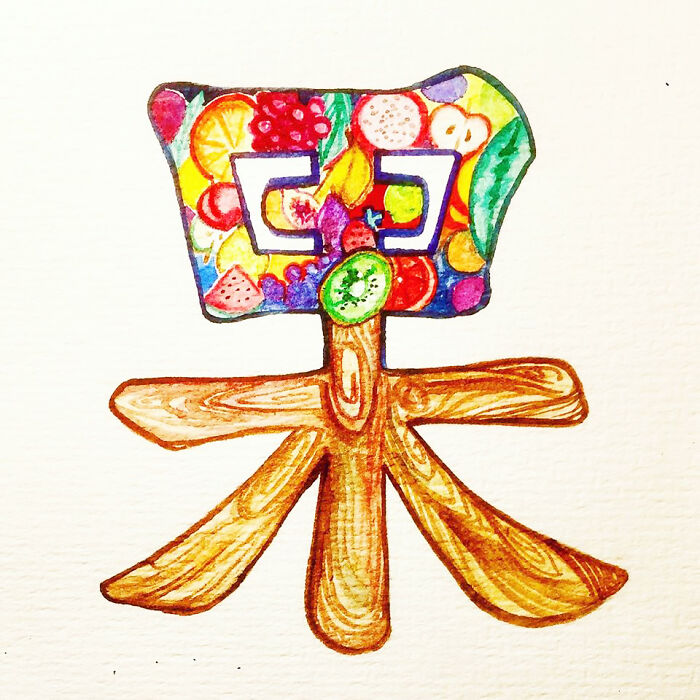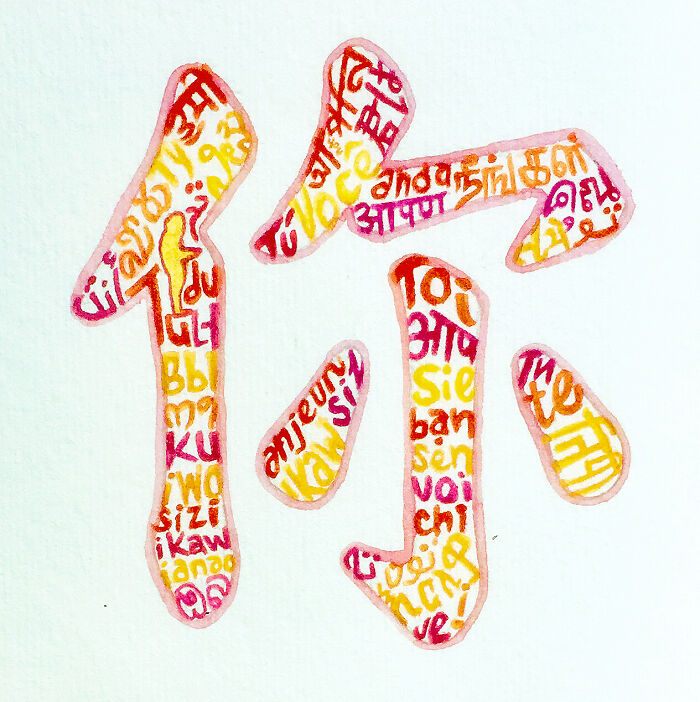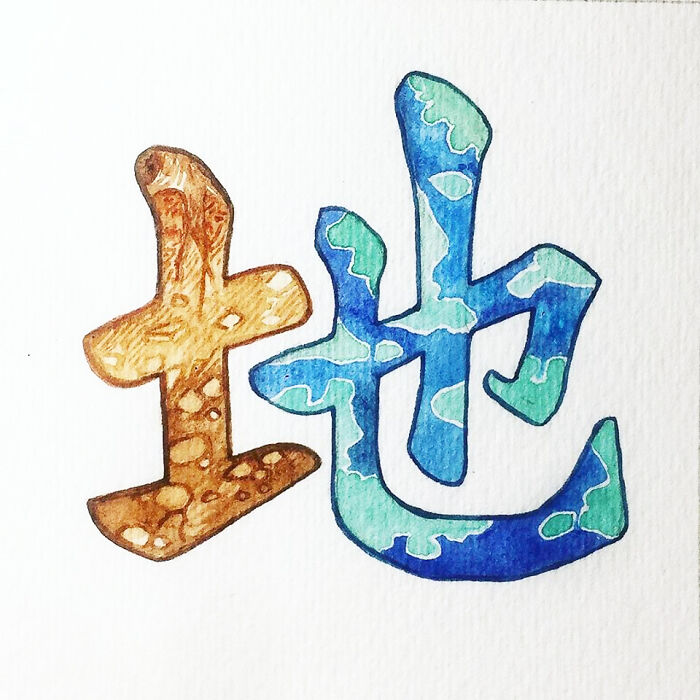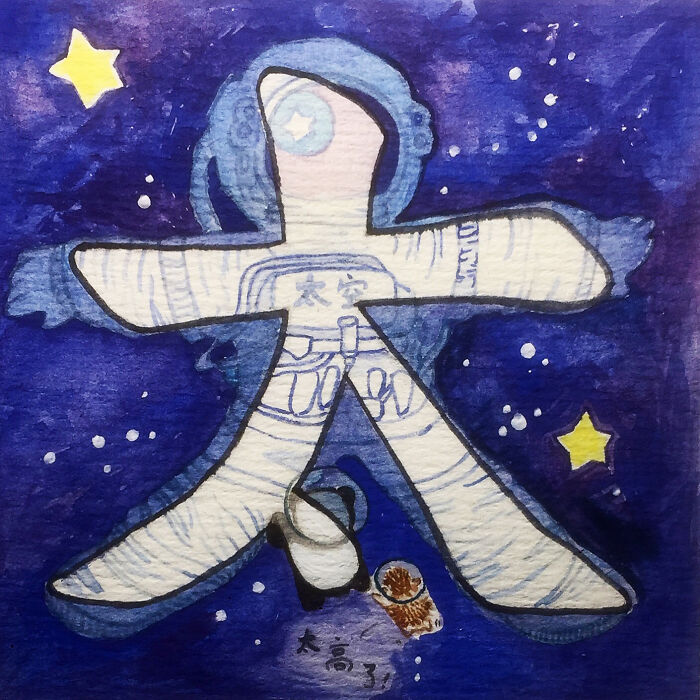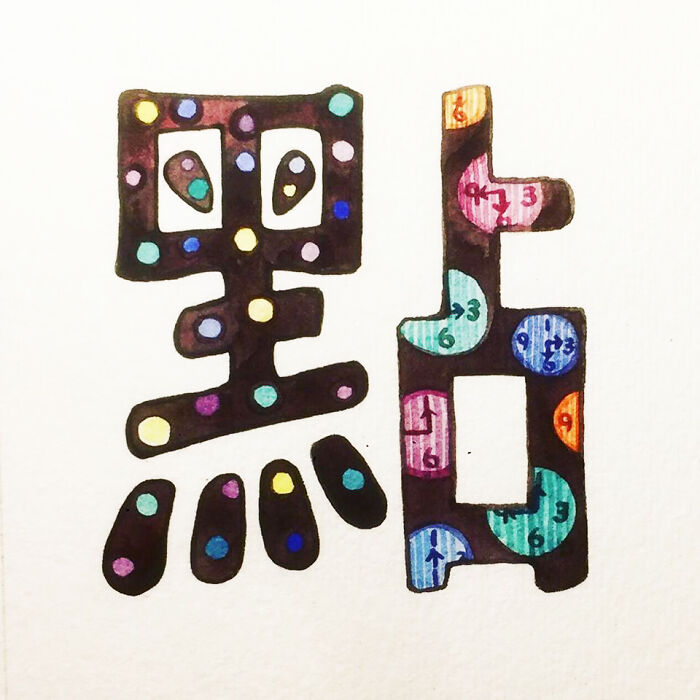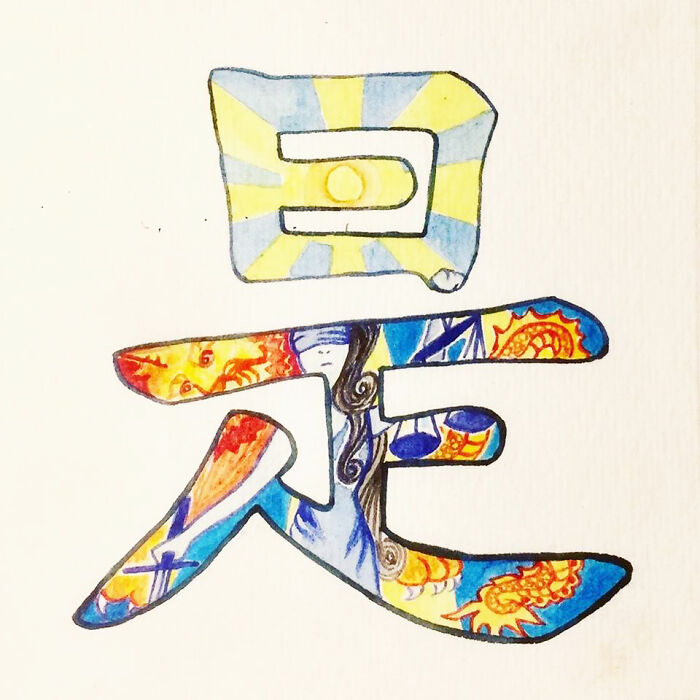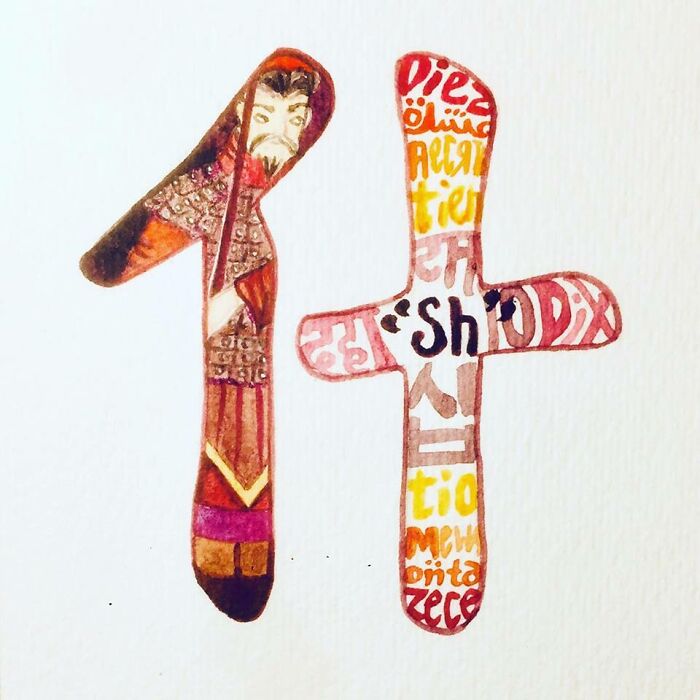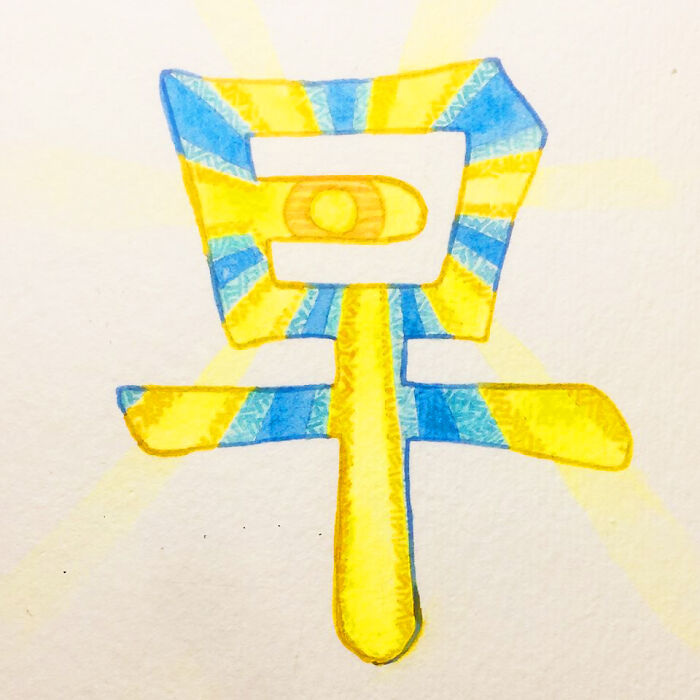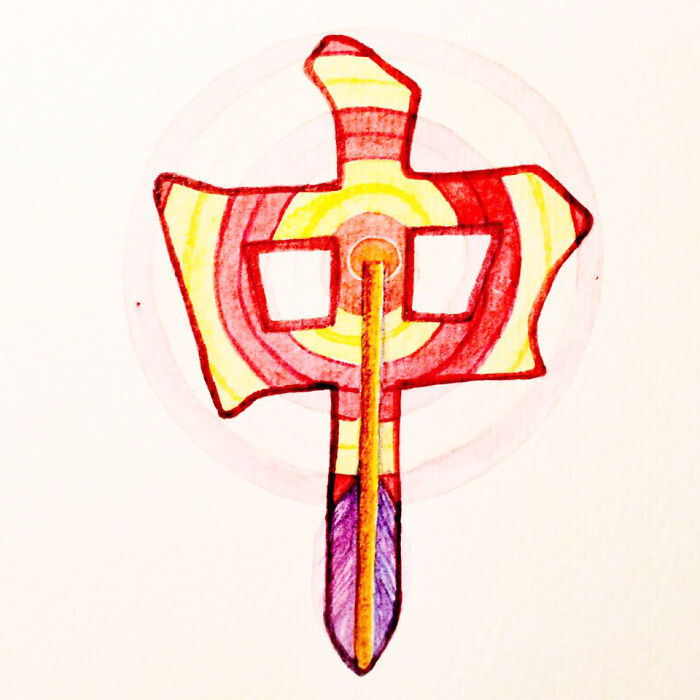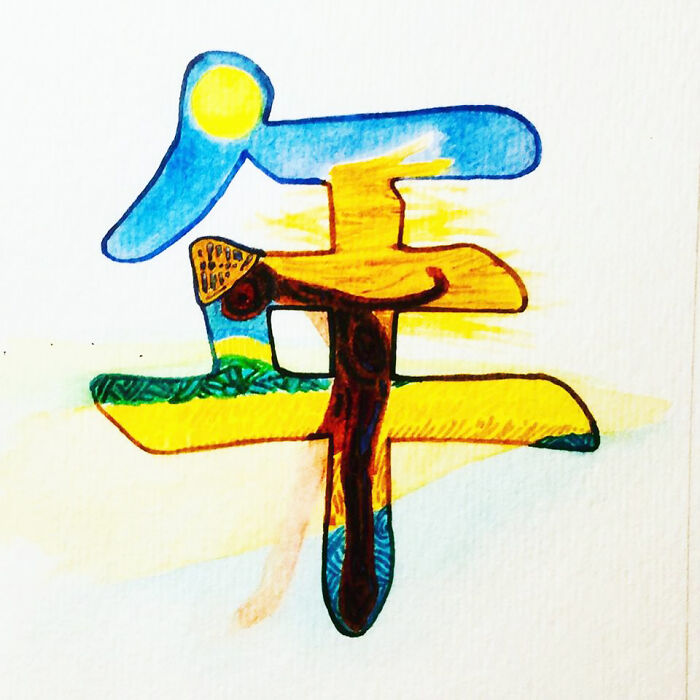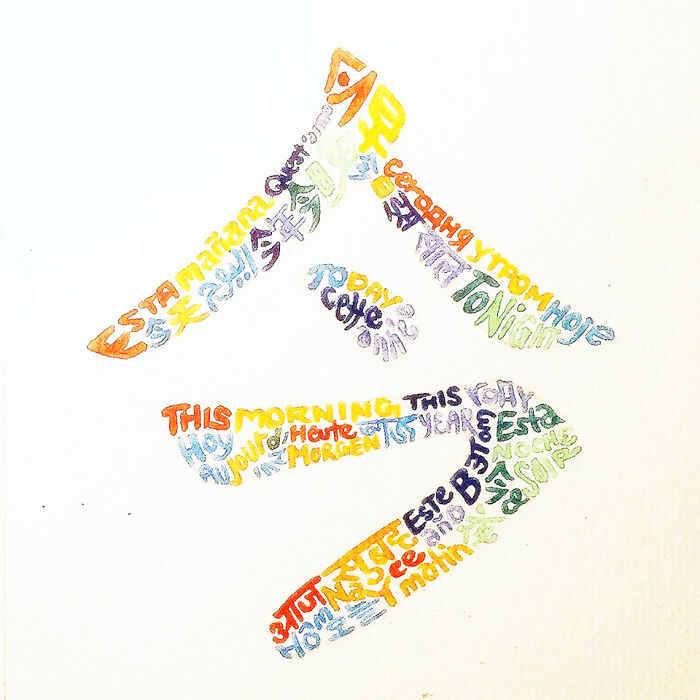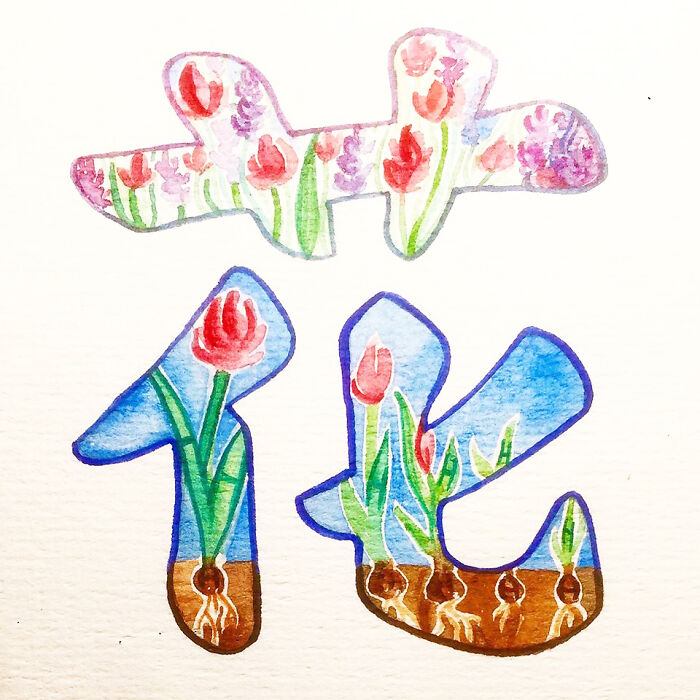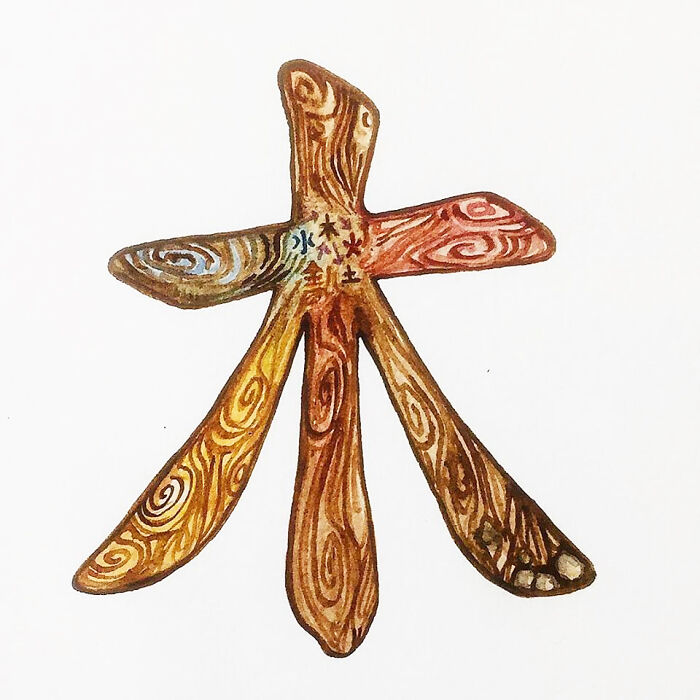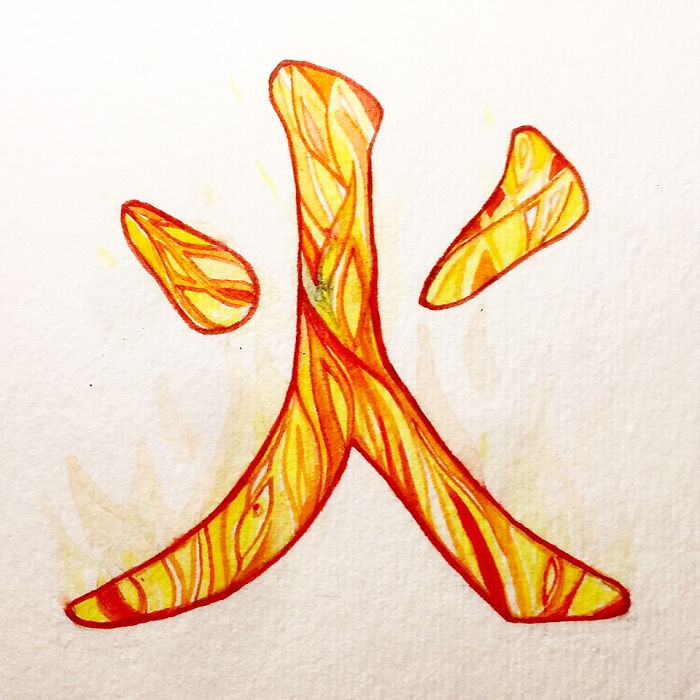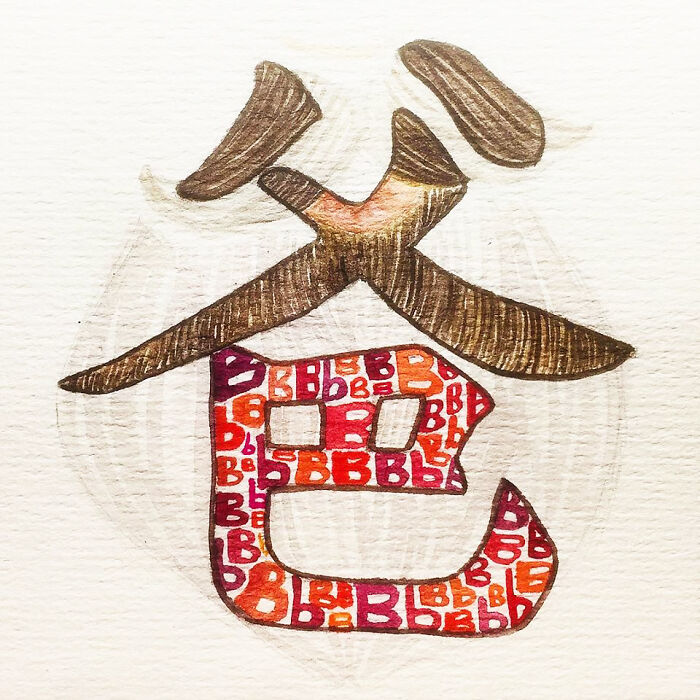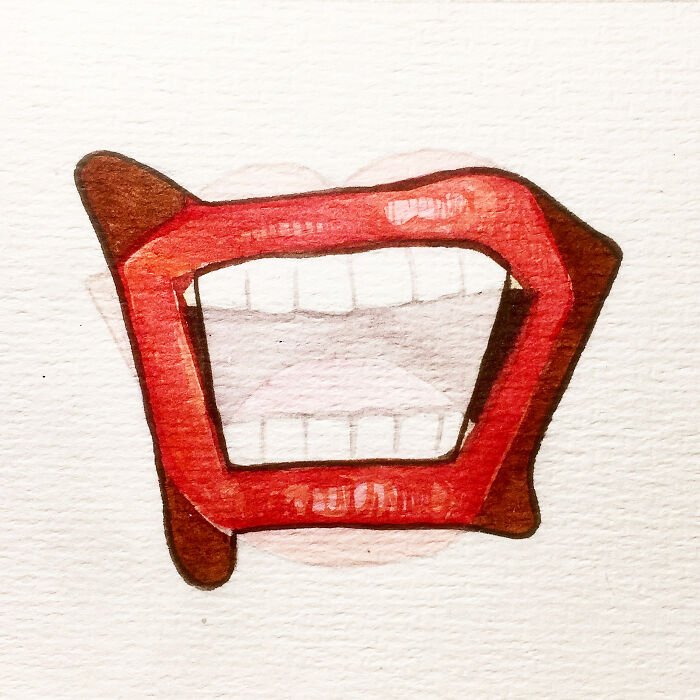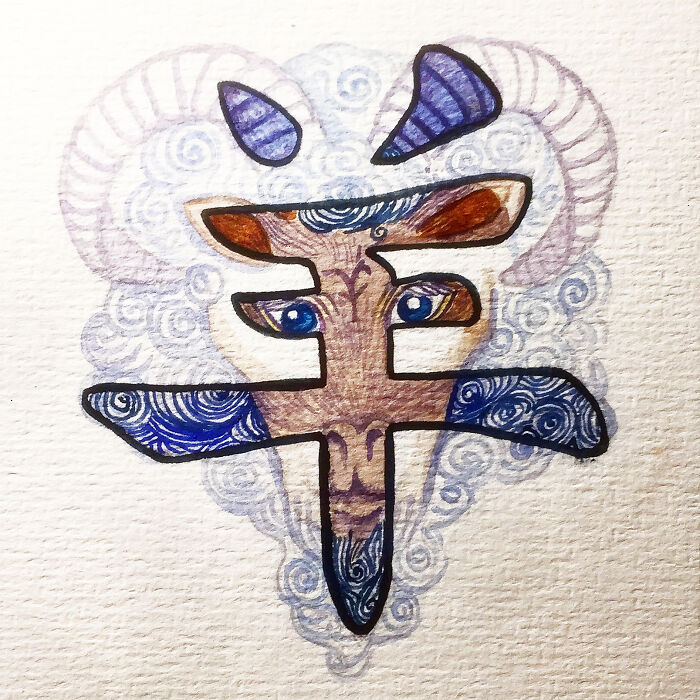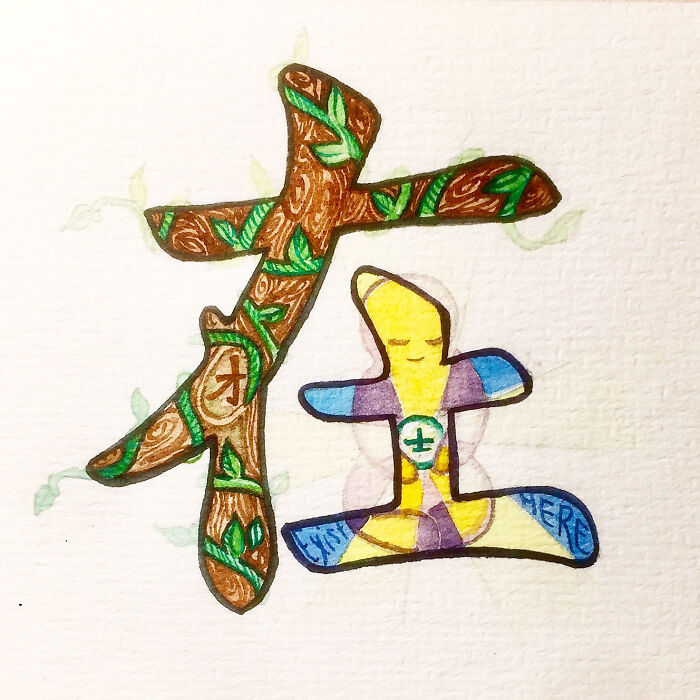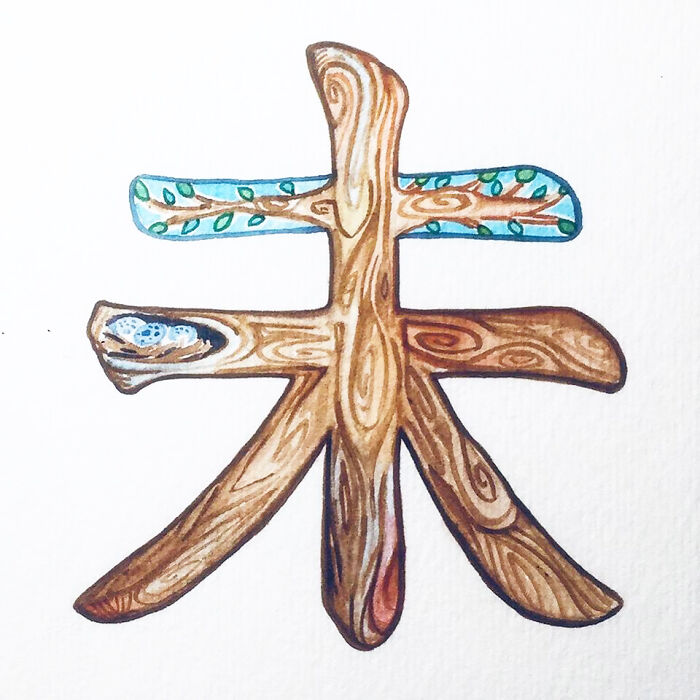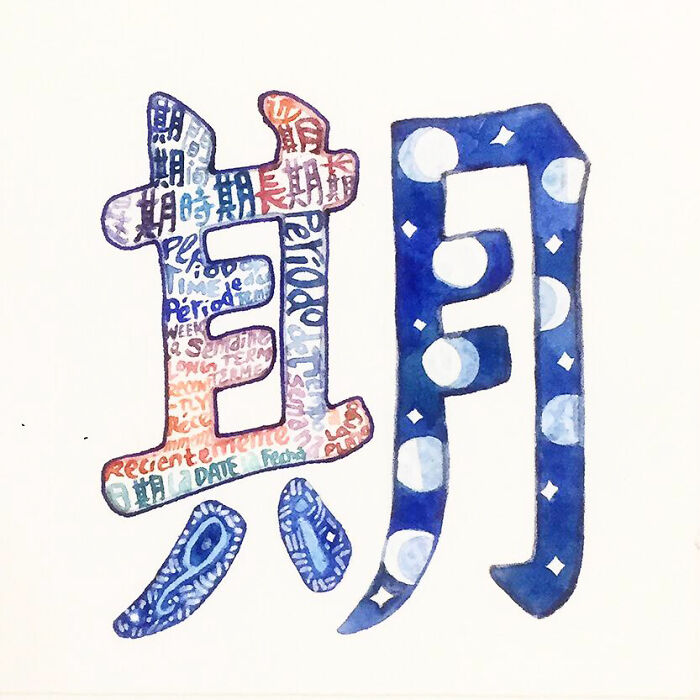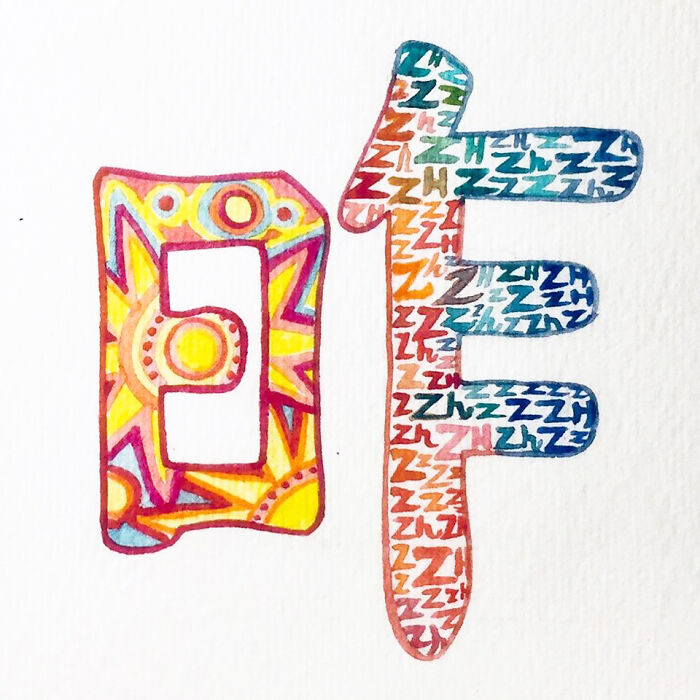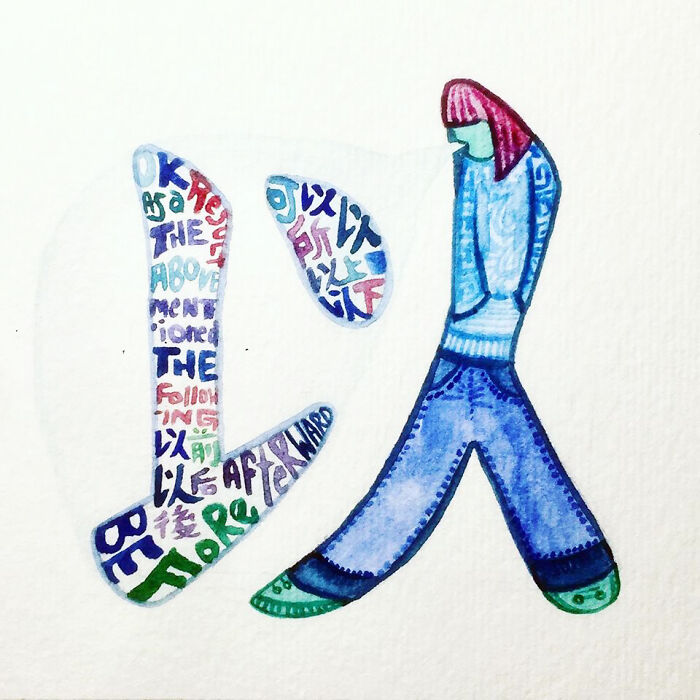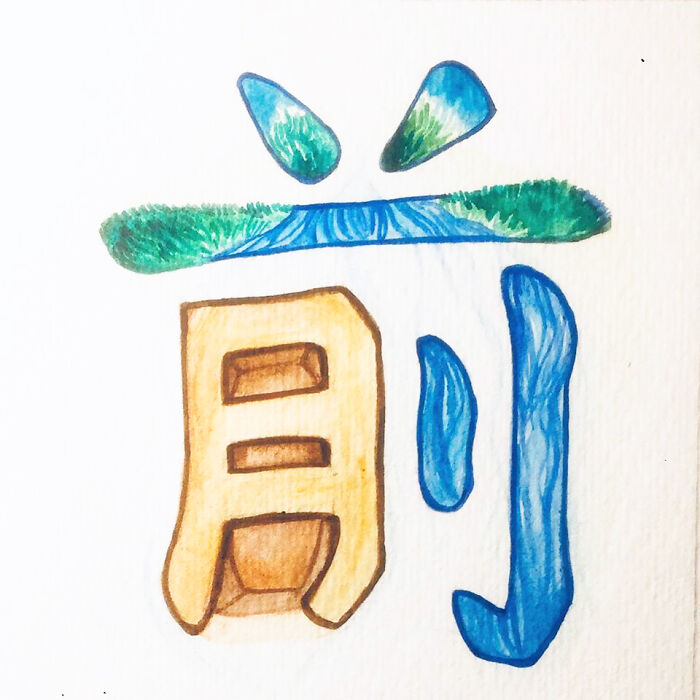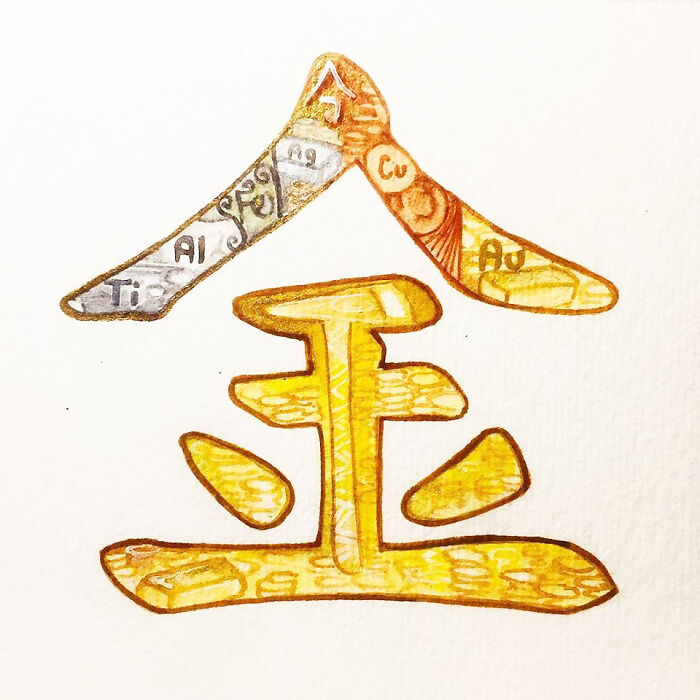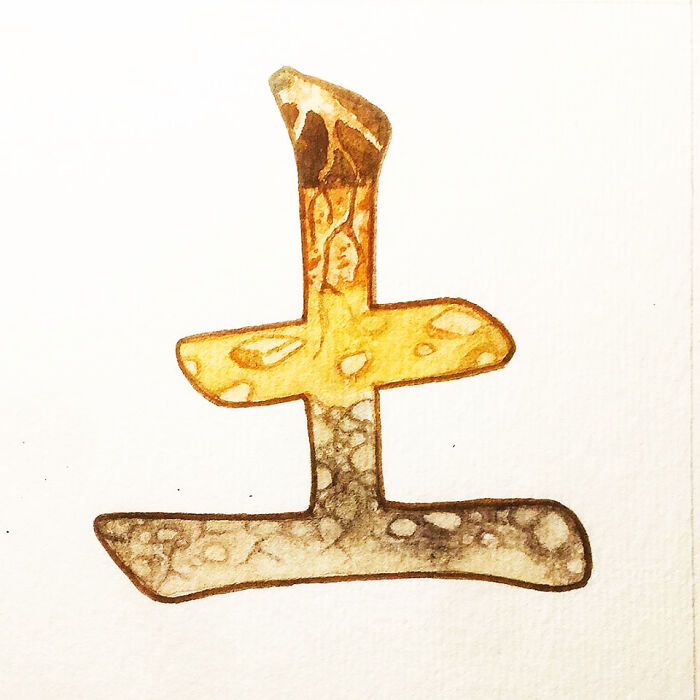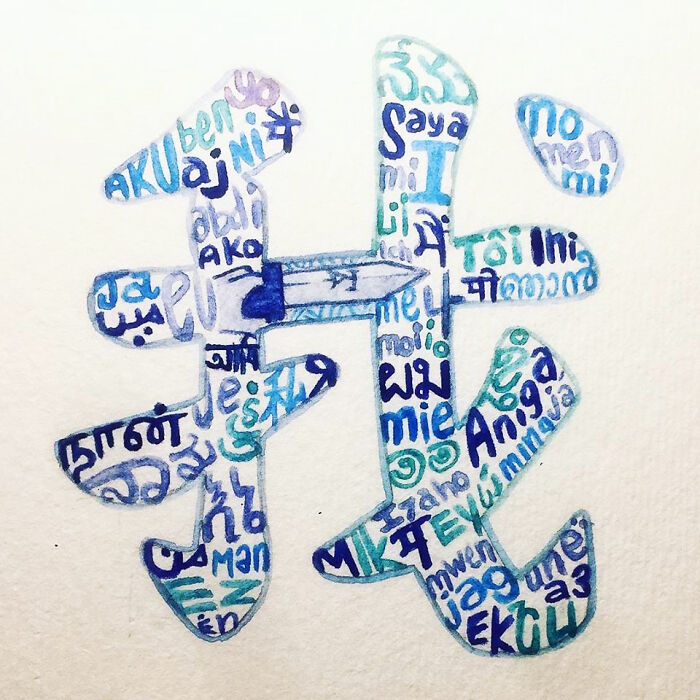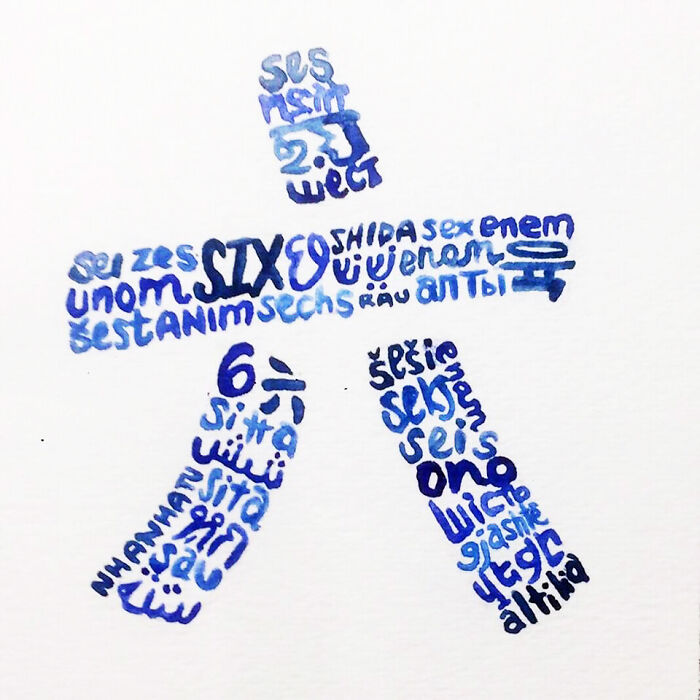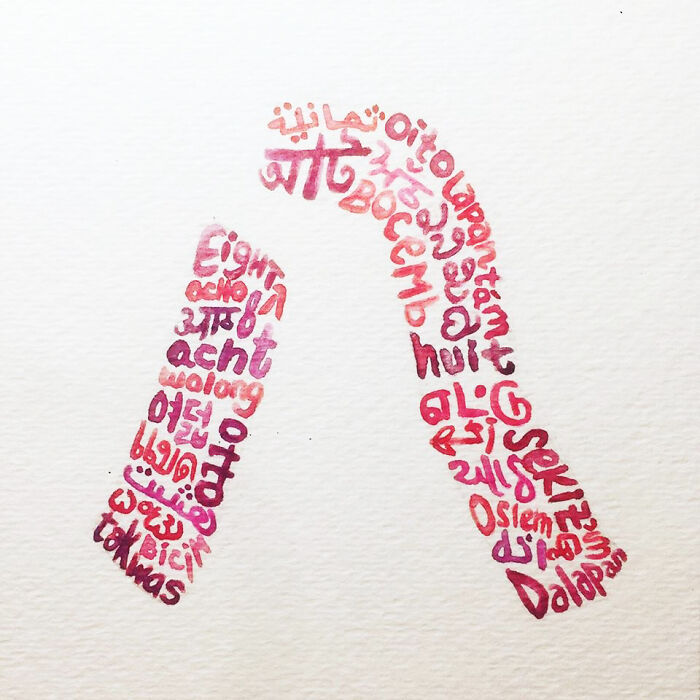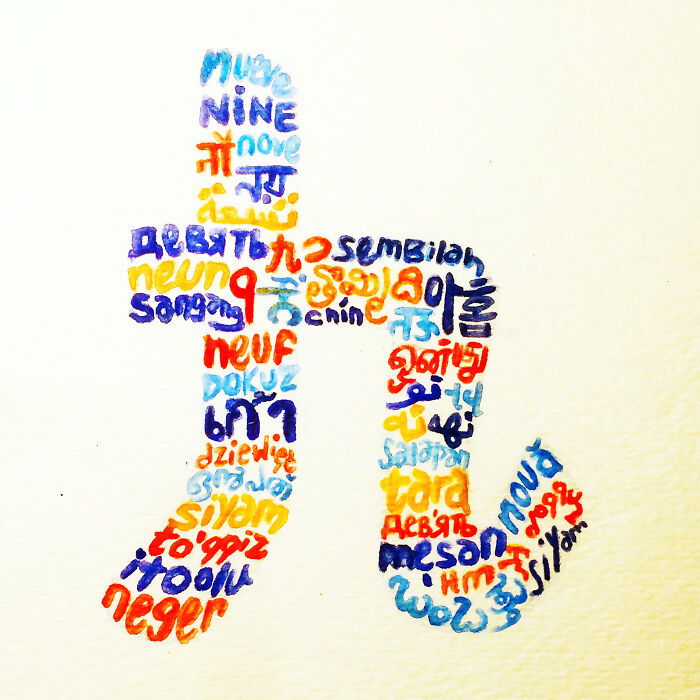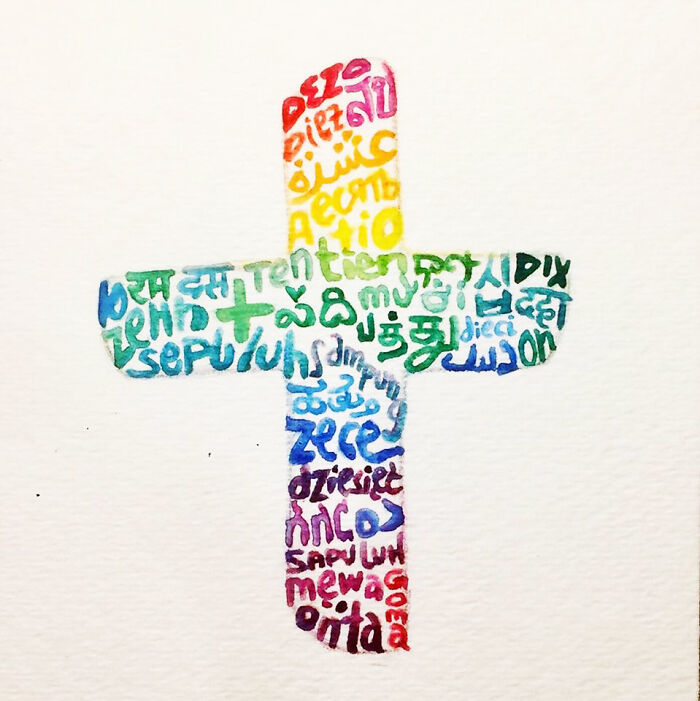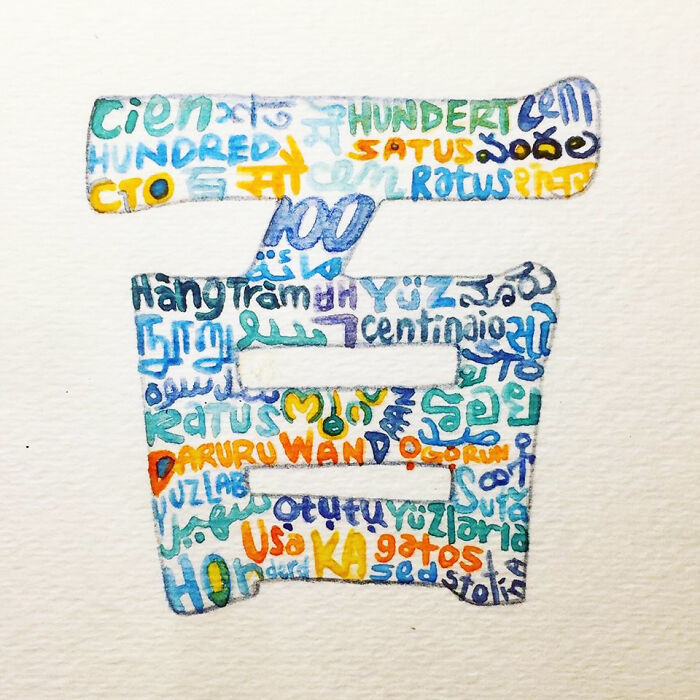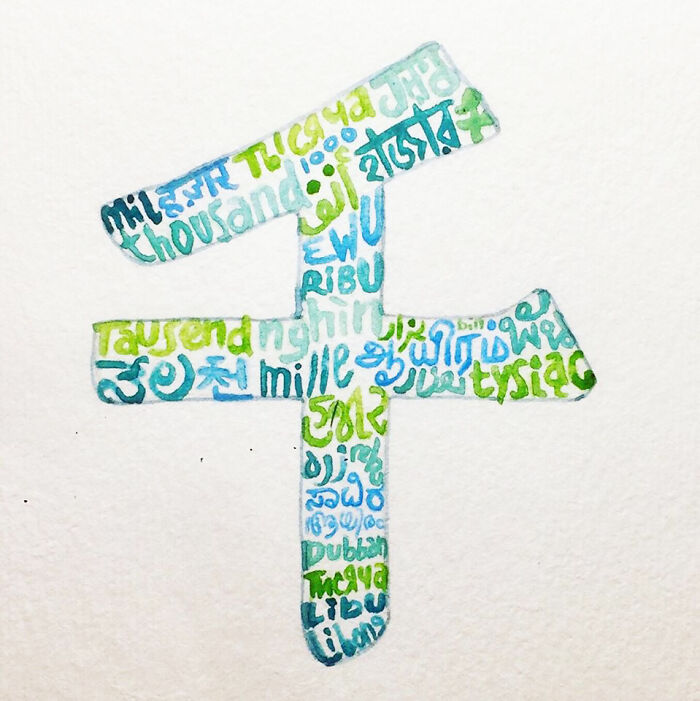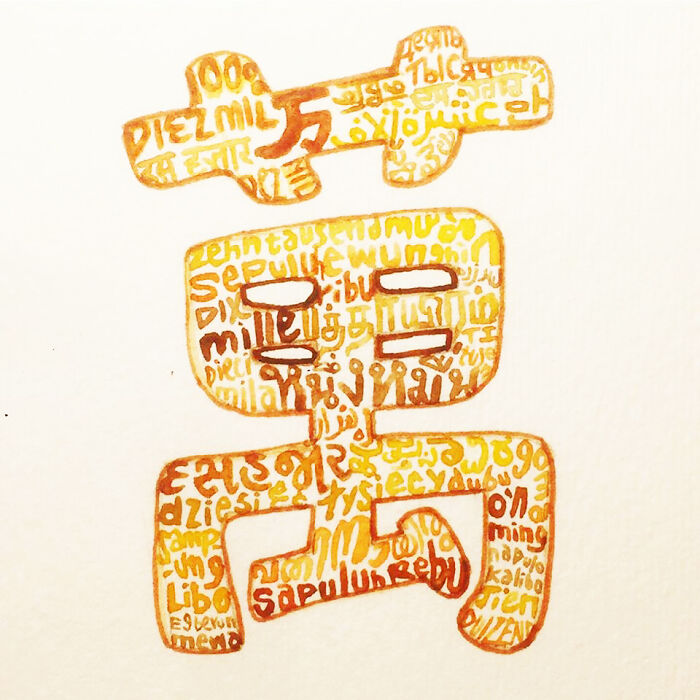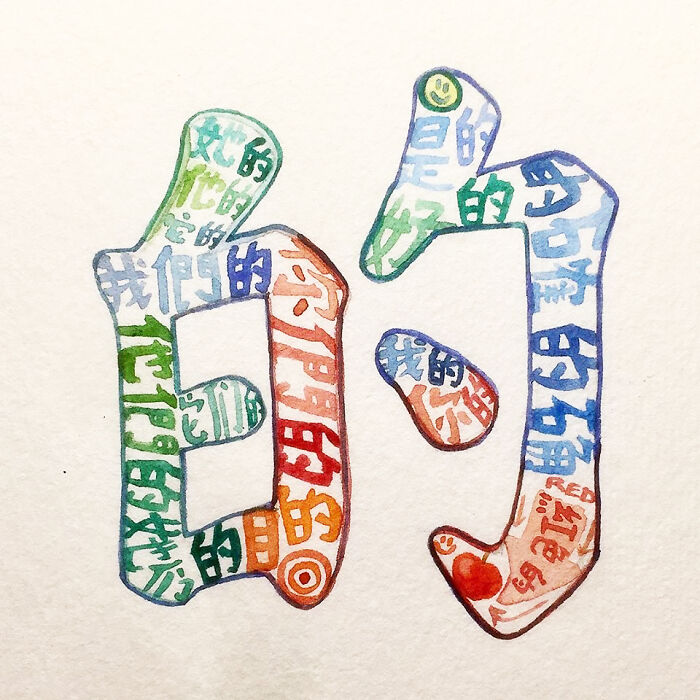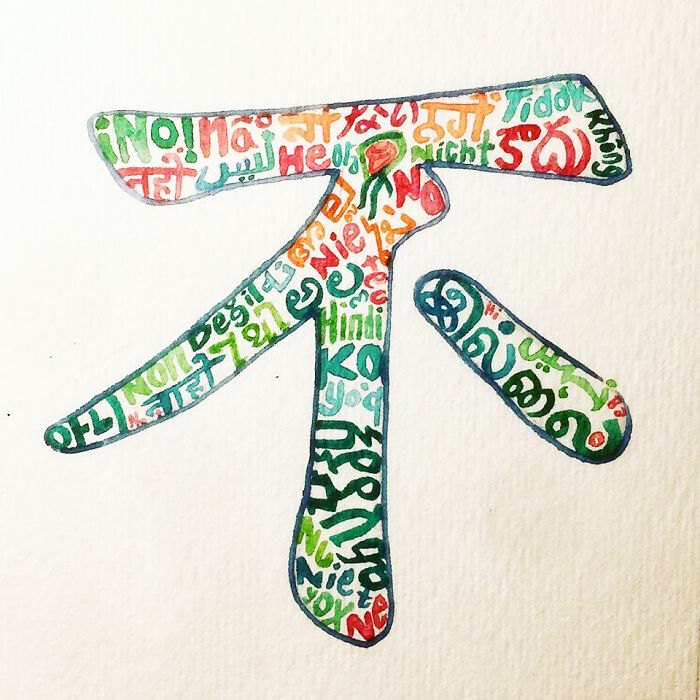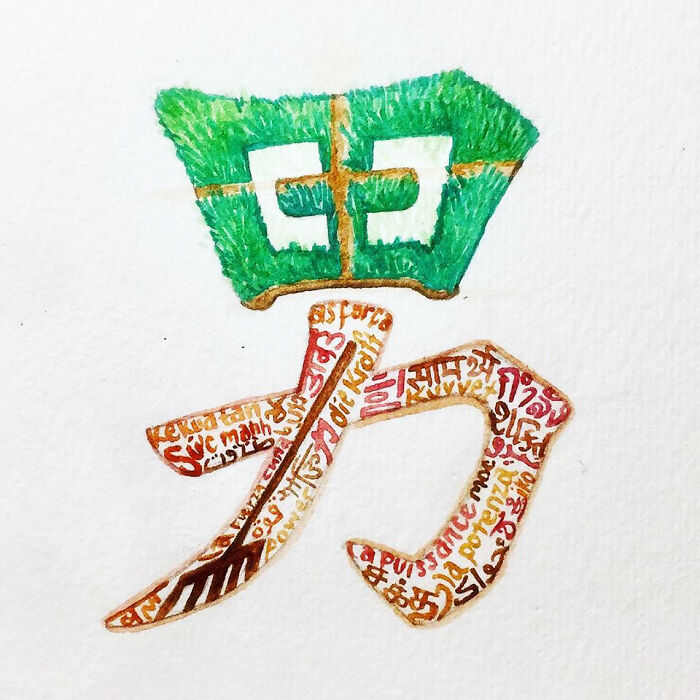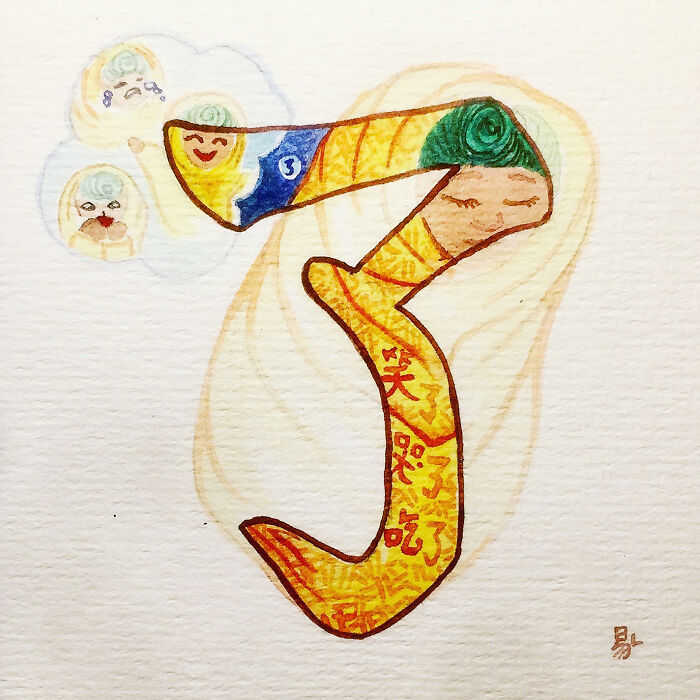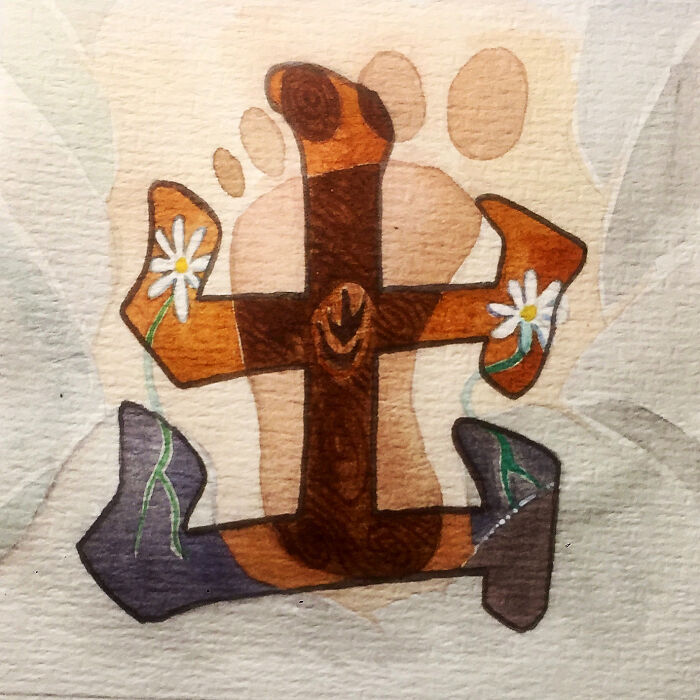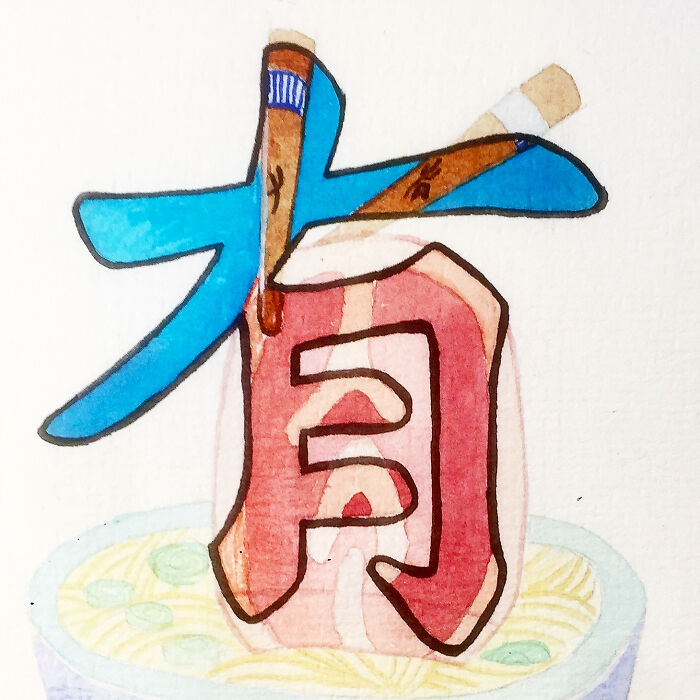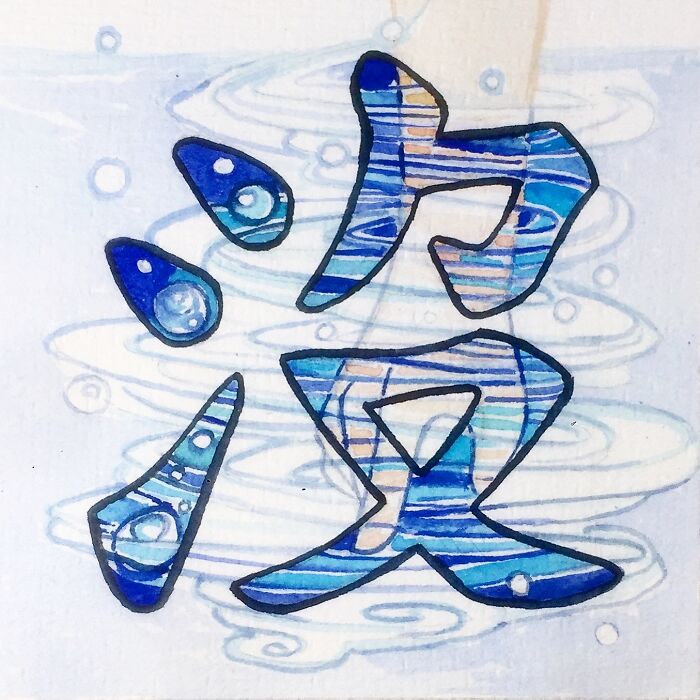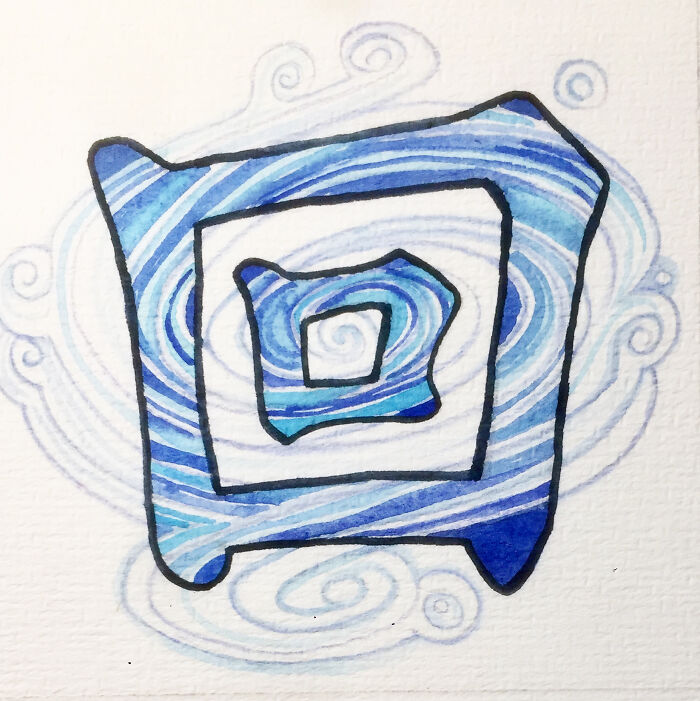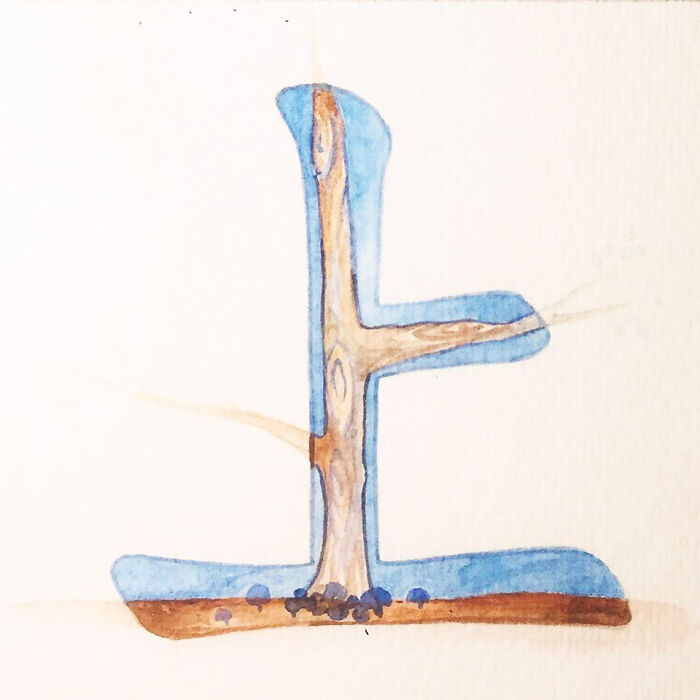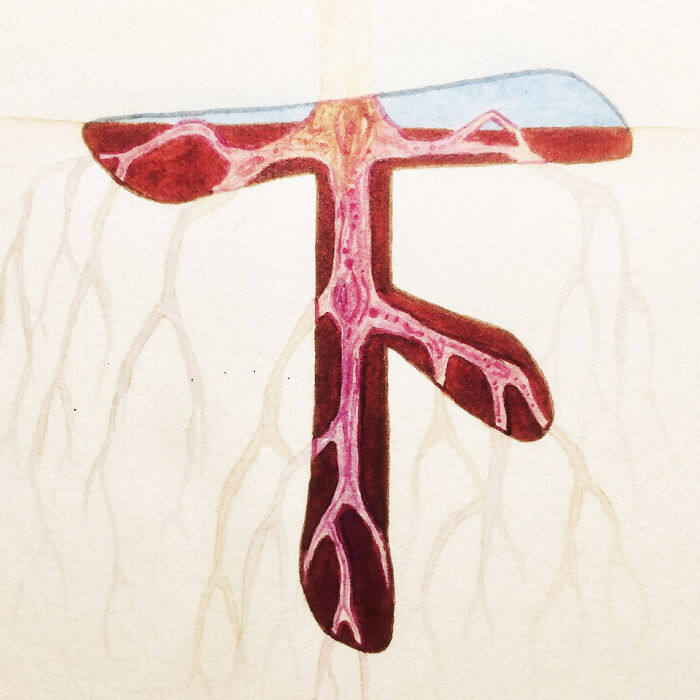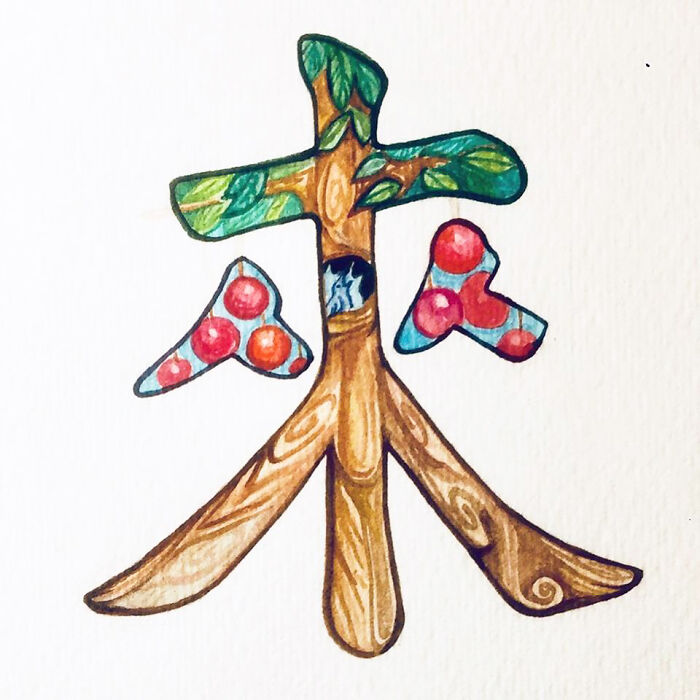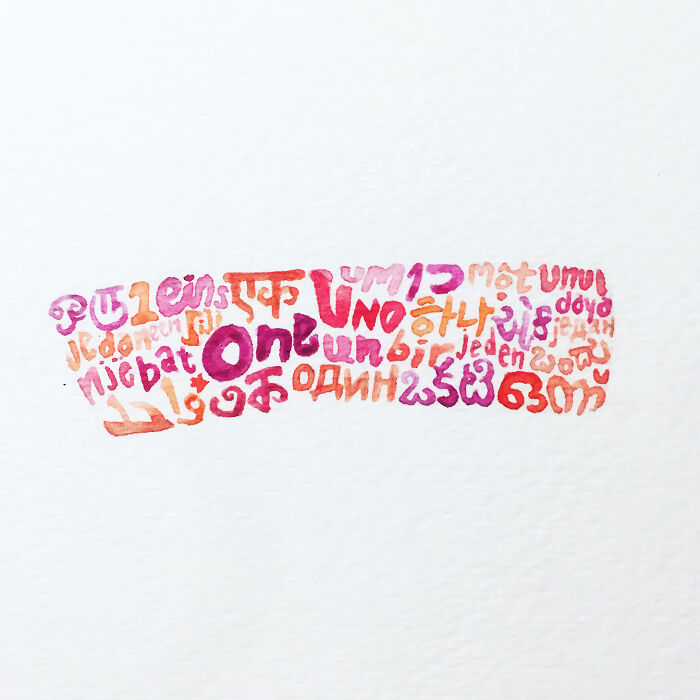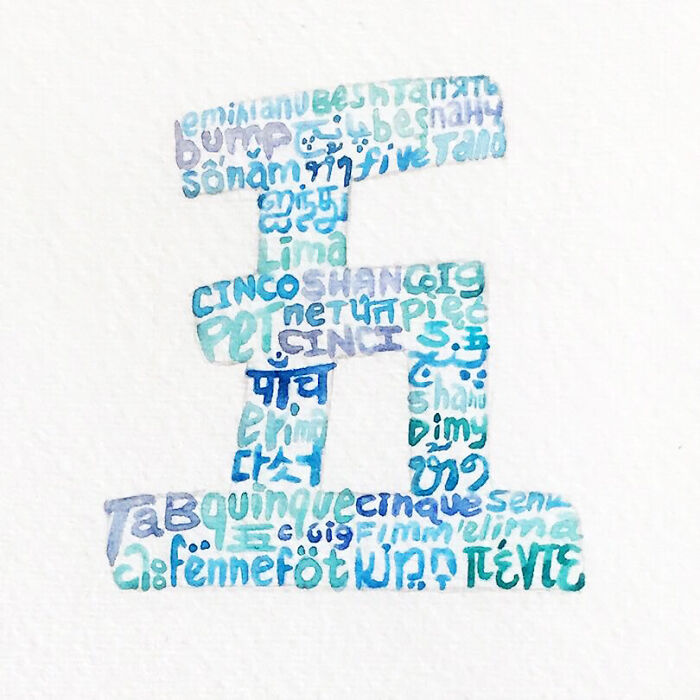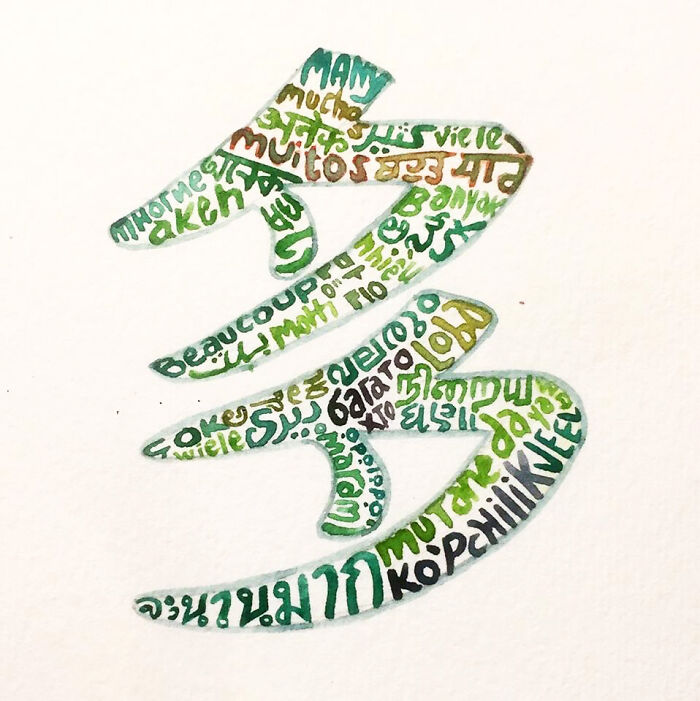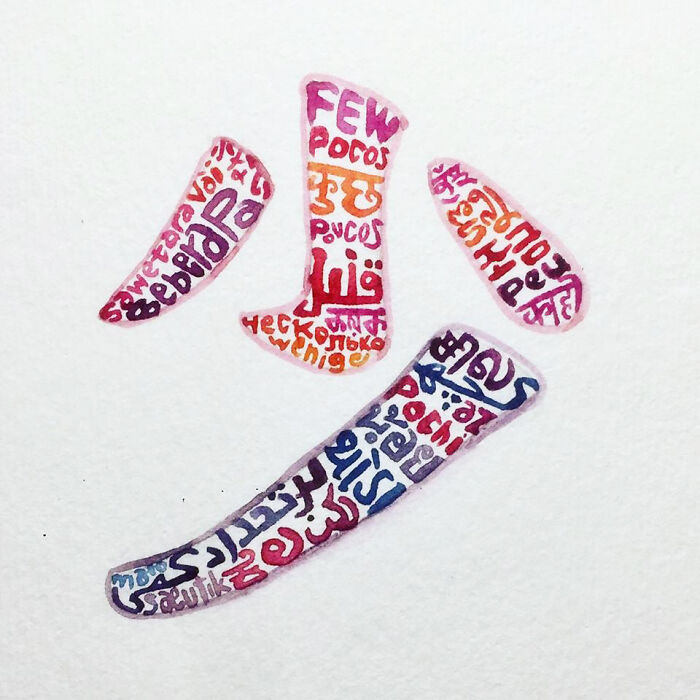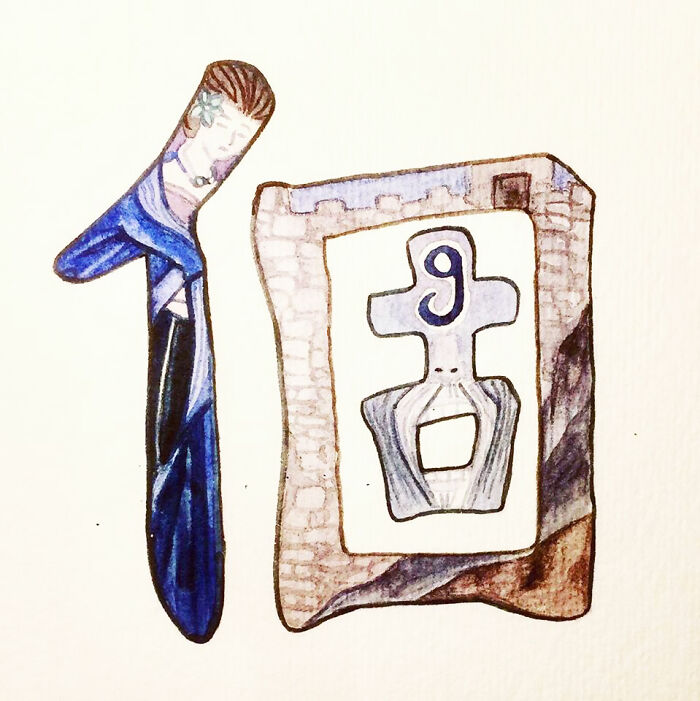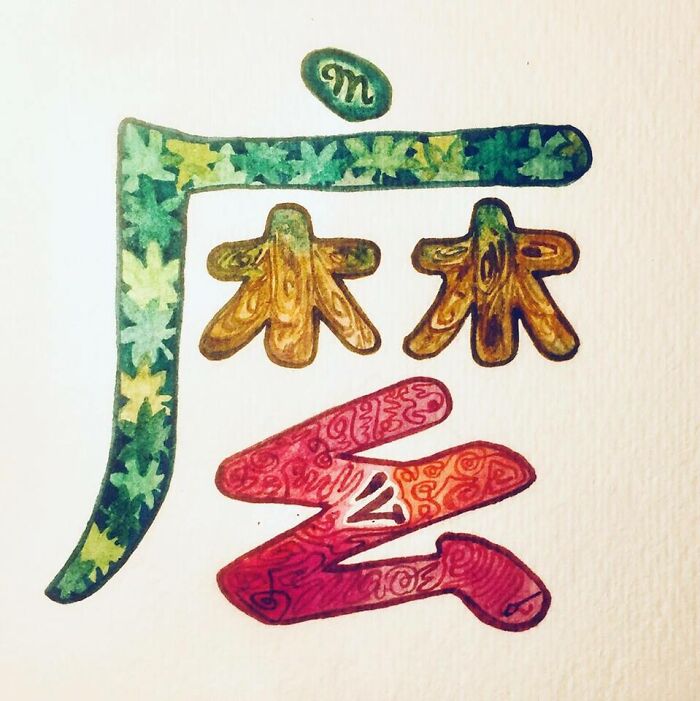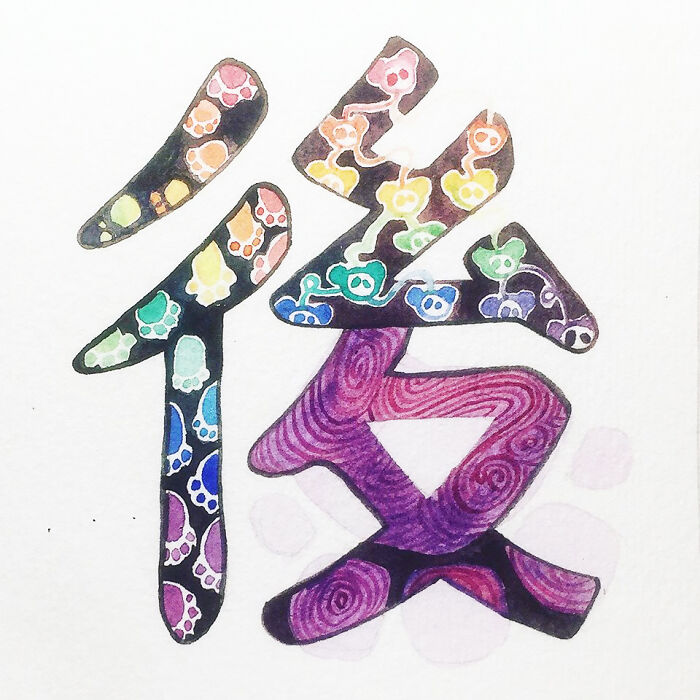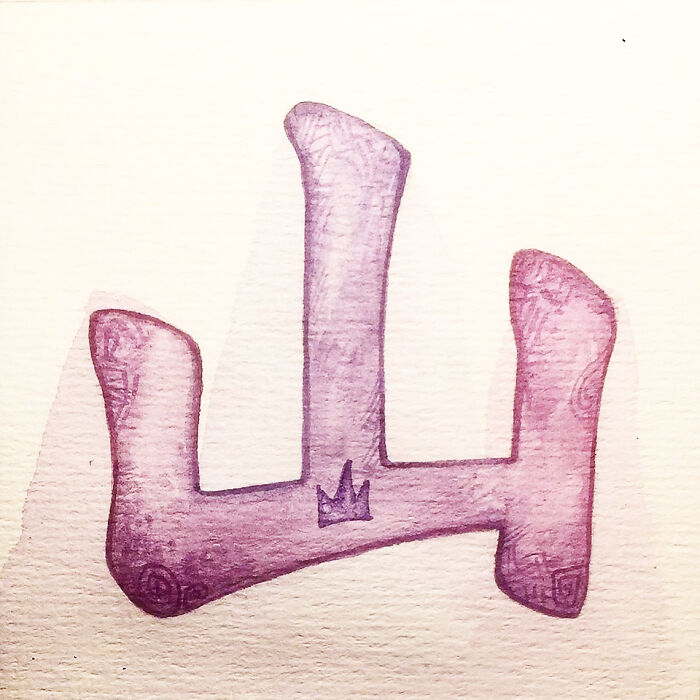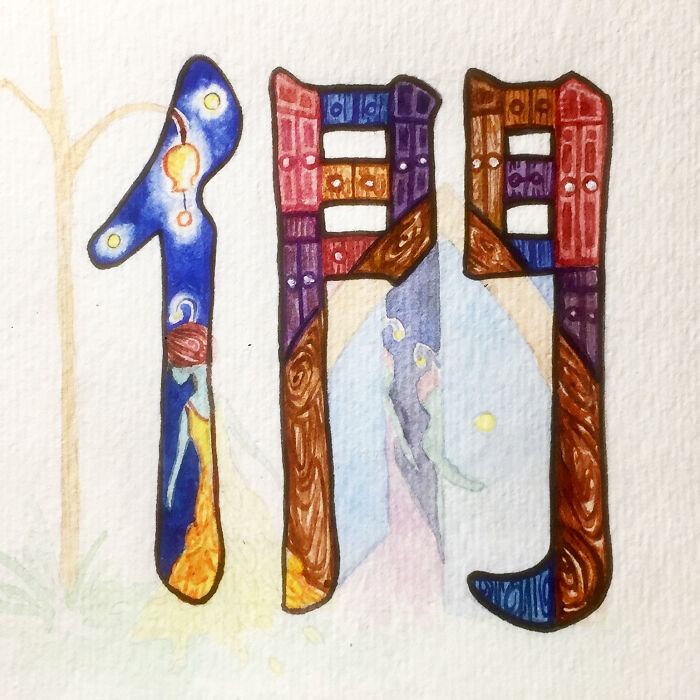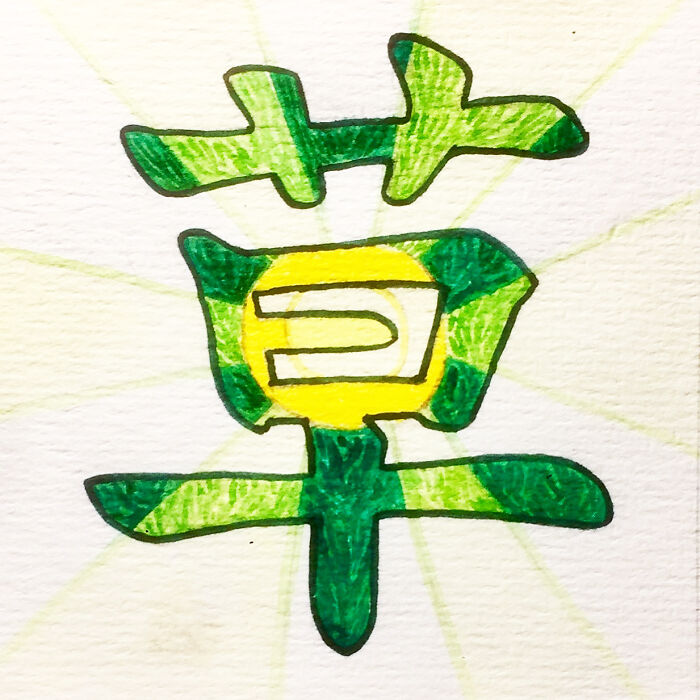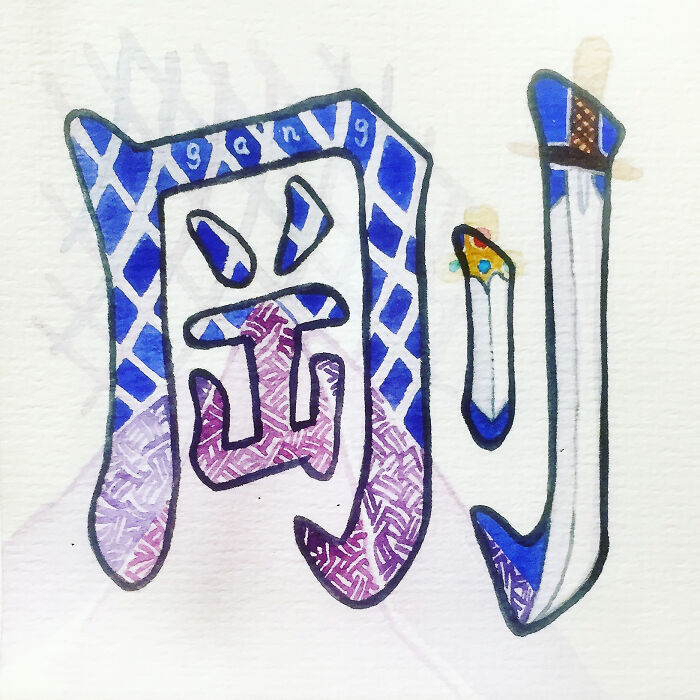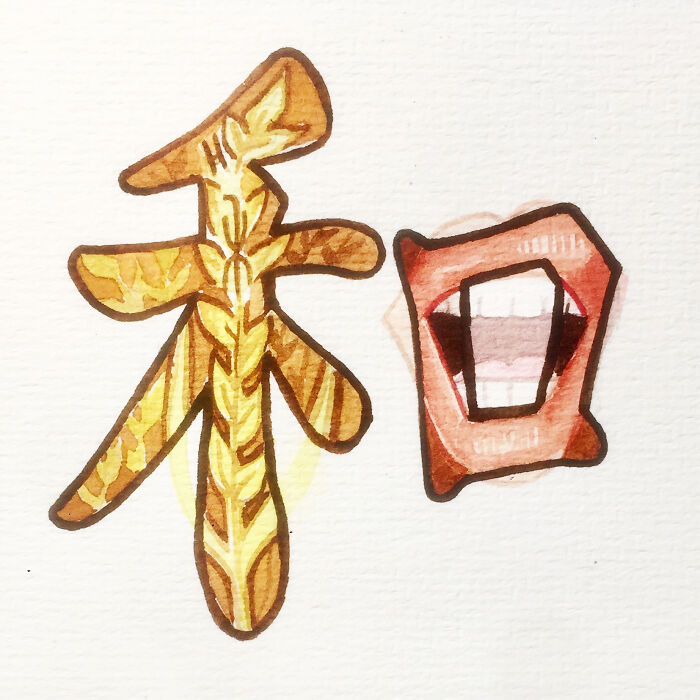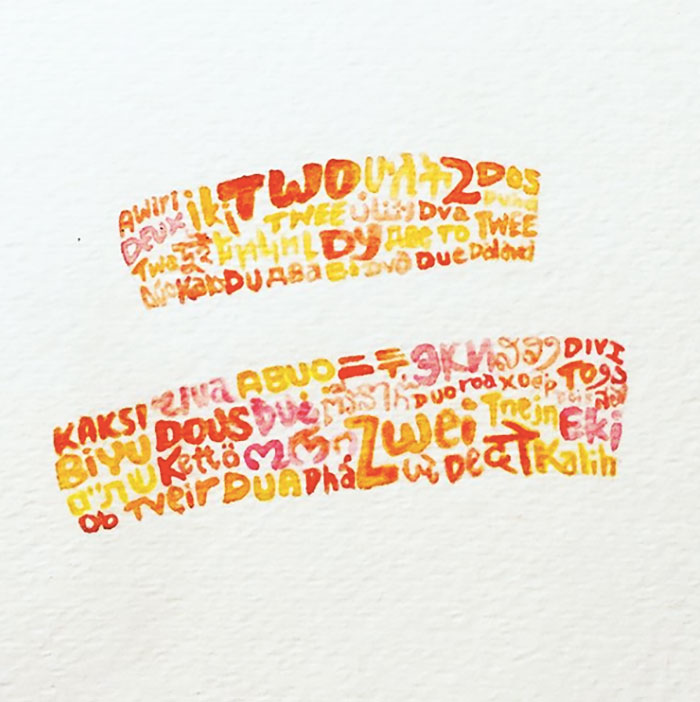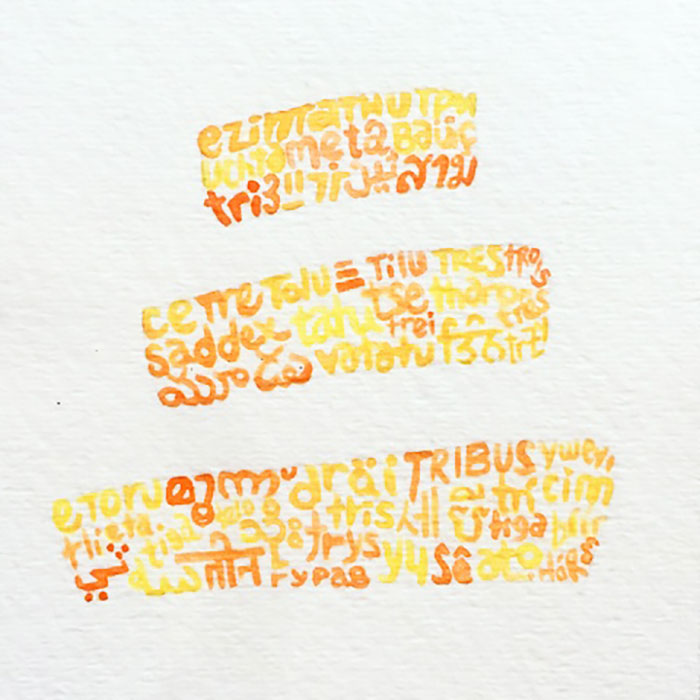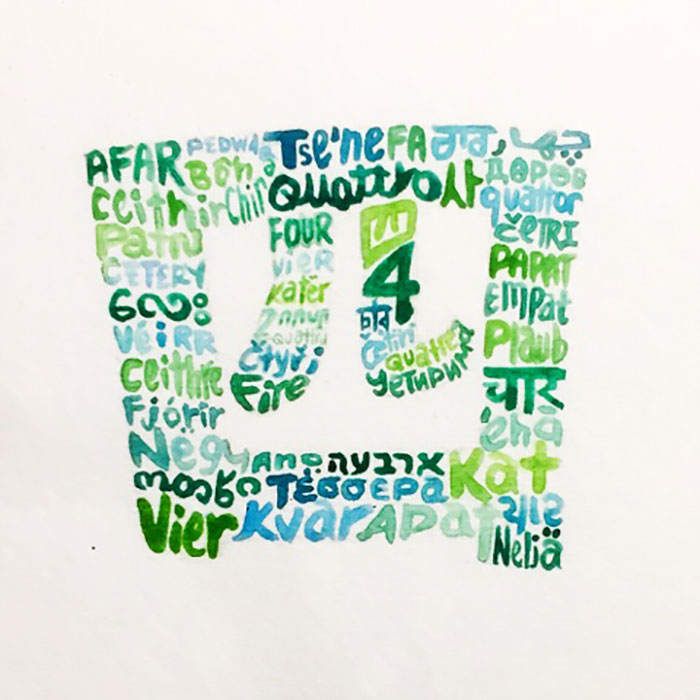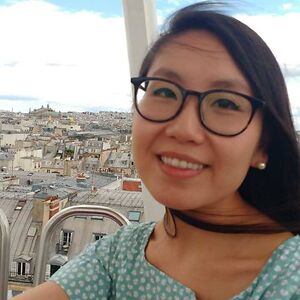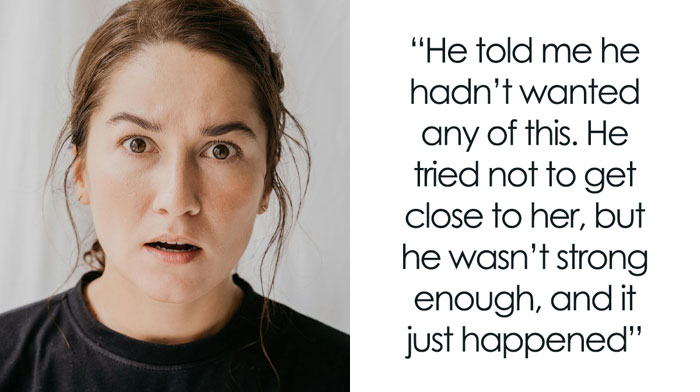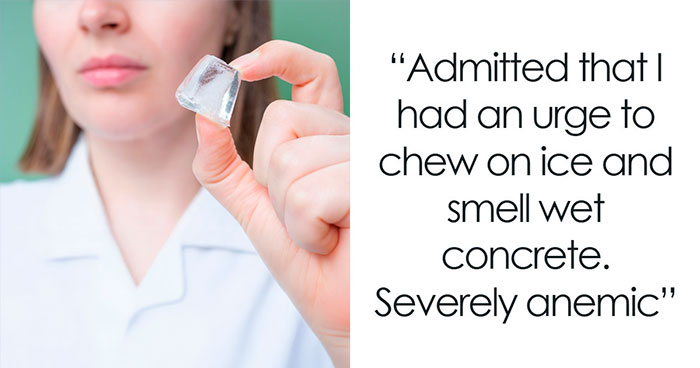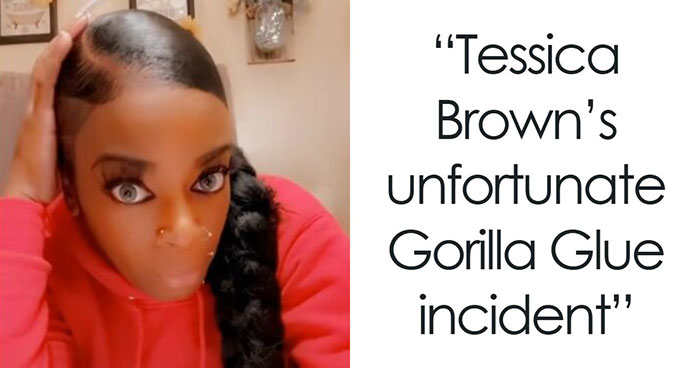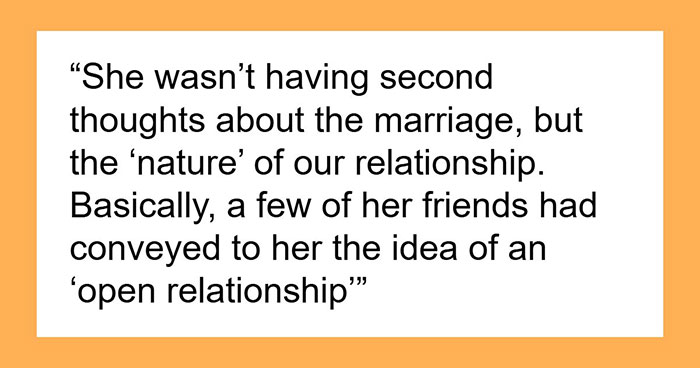
I Painted 100 Chinese Characters In Watercolor So That They Are Easier To Learn
My name is Linda Yi and I'm a writer/illustrator from Georgia, currently based in Brooklyn, NY. I create educational drawings around my own journey of relearning the Chinese language and reconnecting with my cultural heritage.
Writing and illustrating is (what I hope will be!) my second career. I painted these 100 characters during a pivotal year in my life—one during which I took an intentional look at the Chinese characters that had, up to that point, been a source of frustration and built-up dread (if you've been to a weekend Chinese school... you may know the feeling.)
As I researched the meanings behind each of these character paintings, I learned about the secrets and stories shimmering underneath the squiggly characters I’d hated practicing as a kid. These characters—this language I'd held at arm's length—was vibrant and beautiful!
Whenever I look at these character paintings (which I do every day as I settle down to work), I'm reminded of the beauty behind the Chinese language. If it does the same for you, this print is exclusively available through Kickstarter (linked below)!
If successfully funded, this poster will become a reality (and the inaugural print of my home print shop). I have until Dec. 10 to raise the necessary funds, so please chip in below if you appreciate my art!
More info: kickstarter.com
This post may include affiliate links.
星 (Xīng) Star; (Literally 日/Sun + 生/Birth. 星 = Birth Of A Sun)
成 (Chéng) To Make, Succeed, Complete
冬 (Dōng) Winter
月 (Yuè) Moon; Month
春 (Chūn) Spring
夏 (Xià) Summer
秋 (Qiū) Autumn
妹 (Mèi) Younger Sister
好 (Hǎo) Good (Woman女 + Child子)
時(时)(Shí) Time
晚 (Wǎn) Evening; Late
女 (Nǚ) Woman; Female
美 (Měi) Beautiful
人 (Rén) Person
英 (Yīng) Hero, Heroic
日 (Rì) Sun; Day
明 (Míng) Bright; (The 日/Sun And 月/Moon Together Is Bright)
玩 (Wán) Play
水 (Shuǐ) Water
妈 (Mā) Mother
弟 (Dì) Younger Brother
文 (Wén) Text, Culture, Language
吃 (Chī) Eat
午 (Wǔ) Noon
Love how you used the colours. If you look very close at the big symbol, you can see tiny symbols
很 (Hěn) Very
狗 (Gǒu) Dog
孩 (Hái) Child
間(间)(Jiān) Space In Between (Literally A Sun/日 Outside An Open 門/Door)
子 (Zi) Child, Son
門(门)(Mén) Door
也 (Yě) And Also
兩(两) (Liǎng) Double, Two (Of Something)
二 (er)is two, but only as the number. 两is the adjective (two cats, for instance)
大 (Dà) Big
半 (Bàn) Half
家 (Jiā) Home, Family
姐 (Jiě) Older Sister
哥 (Gē) Older Brother
果 (Guǒ) Fruit
你 (Nǐ) You
地 (Dì) Earth; Ground
太(Tài) Greatest; Highest, Too
點(点)(Diǎn) Dot; A Bit; Used For Telling Time
是(Shì) Is; Just
什 (Shén) What (Part 1)
早 (Zǎo) Morning; Early
中 (Zhōng) Middle, Center
天 (Tiān) Sky; Heavens
年 (Nián) Year
今 (Jīn) This, Now
花 (Huā) Flower
木 (Mù) Wood
See those characters carved in the wood? Those are elements. 💧 🔥 🌱 🌍
火 (Huǒ) Fire
爸 (Bà) Father
口 (Kǒu) Mouth
羊 (Yáng) Ram/Sheep
在 (Zài) To Be (Somewhere)
未 (Wèi) Not, Not Yet Come
期 (Qī) Period (Of Time)
昨 (Zuó) Yesterday
昨天(zuo tian) is actually yesterday, 昨 is “previously” by itself, but only in contexts pertaining to time.
以 (Yǐ) With, By, According To
前 (Qián) Before, In Front
金 (Jīn) Metal, Gold
土 (Tǔ) Earth, Soil
我 (Wǒ) I; Me
六 (Liù) Six
七 (Qī) Seven
八 (Bā) Eight
九 (Jiǔ) Nine
十 (Shí) Ten
百 (Bǎi) Hundred
千 (Qiān) Thousand
萬(万)(Wàn) Ten Thousand
小 (Xiǎo) Small
的 (De) Possessive Article
我的(wo de) means mine, 他/她的(ta/ta de) for the male/female is his or hers.
不 (Bù) No
男 (Nán) Man; Male
了 (Le) Helper Particle; Often Used To Indicate An Action As Passed
出 (Chū) To Go Out
有 (Yǒu) Have
This has nothing to do with the picture but for people reading this. writing Chinese Characters is harder than you might think. especially if ins in bubble writing!!! I believe that "Linda Yi" has done a wonderful job at both the writing, and the art. Btw.in my opinion, the word xin - which means heart. 心 is one of the hardest words to write.
没 (Méi) No/Not; To Sink Or Submerge
回 (Huí) Return; Circle; Wind
上 (Shàng) Up; Above
上 (Xià) Down; Below
來(来)(Lái) Come
一 (Yī) One
五 (Wǔ) Five
多 (Duō) Many
少 (Shǎo) Less
個(个) A; Basic Measure Word
麼(么)(Me) What (Part 2)
後(后) (Hòu) Behind, After
山(Shān) Mountain
們(们)(Men) Plural Particle (For Pronouns)
Found in 我们(wo men), which means we, 他们(ta men), which means they, etc
草 (Cǎo) Grass
剛(刚) Just So, Firm
和 (Hé) Harmonious; Gentle; And
二 (Èr) Two
Like I said earlier, two is the only number that is changed to become an adjective. Five, for instance, is both the number and the adjective, but 二 is the number alone, while 两 is the adjective.
三 (Sān) Three
四 (Sì) Four
Really cool post, I love it. Interesting thing about Chinese is the idea of tones of words, like I hinted at earlier with 妈(mā, mom) and 马(mǎ, horse). So the same sound with a different accent can mean completely different things.
this concept seems just incredible! i have seen negative comments but to know exactly whether it works or not, it can be tried with small children who start learning and the results will eventually show if it works... but as just an exterior viewer and artist, i love your works:)
Really cool post, I love it. Interesting thing about Chinese is the idea of tones of words, like I hinted at earlier with 妈(mā, mom) and 马(mǎ, horse). So the same sound with a different accent can mean completely different things.
this concept seems just incredible! i have seen negative comments but to know exactly whether it works or not, it can be tried with small children who start learning and the results will eventually show if it works... but as just an exterior viewer and artist, i love your works:)

 Dark Mode
Dark Mode 

 No fees, cancel anytime
No fees, cancel anytime 






